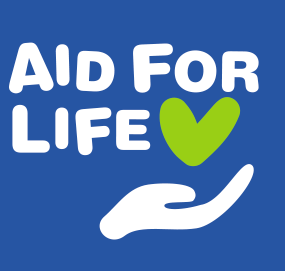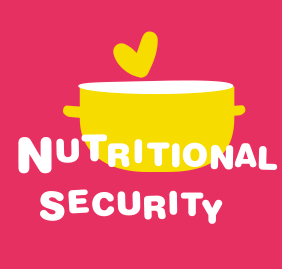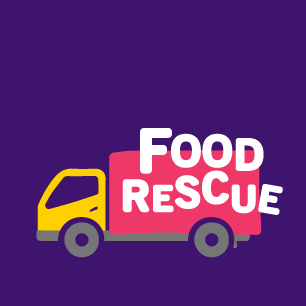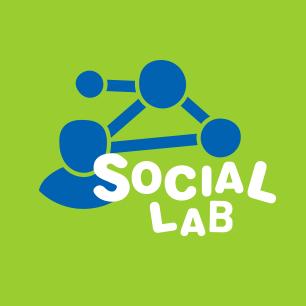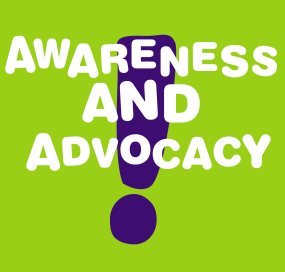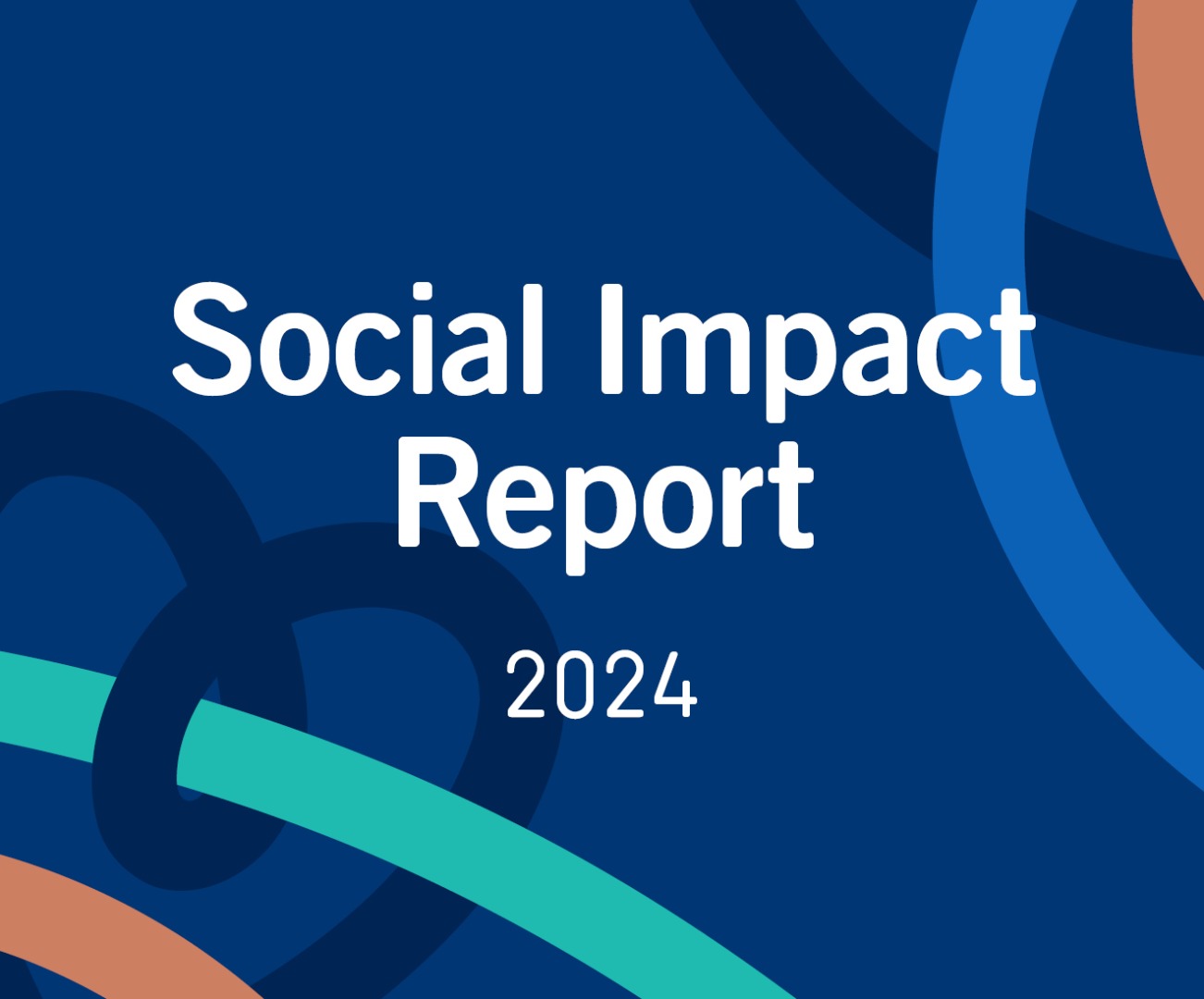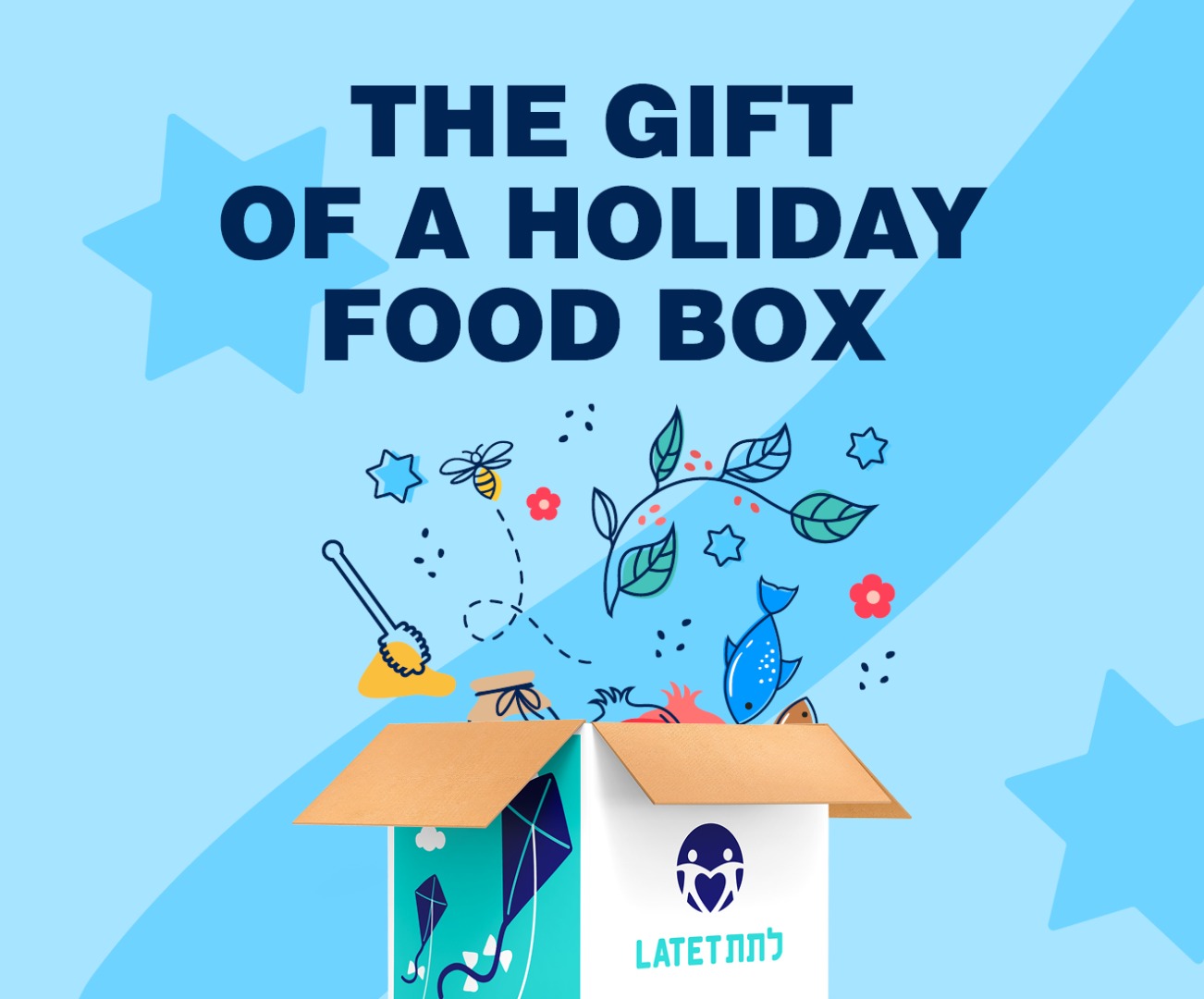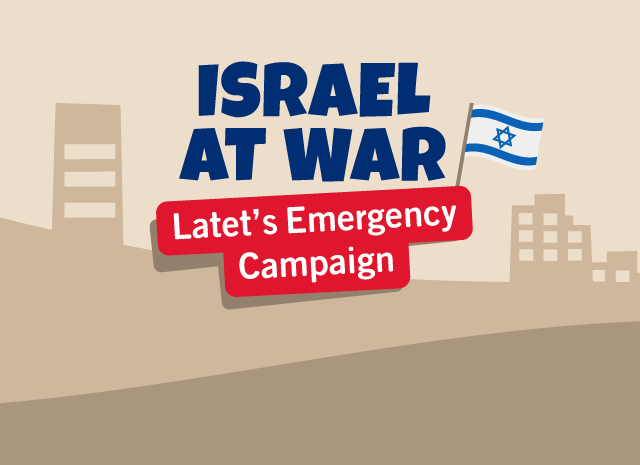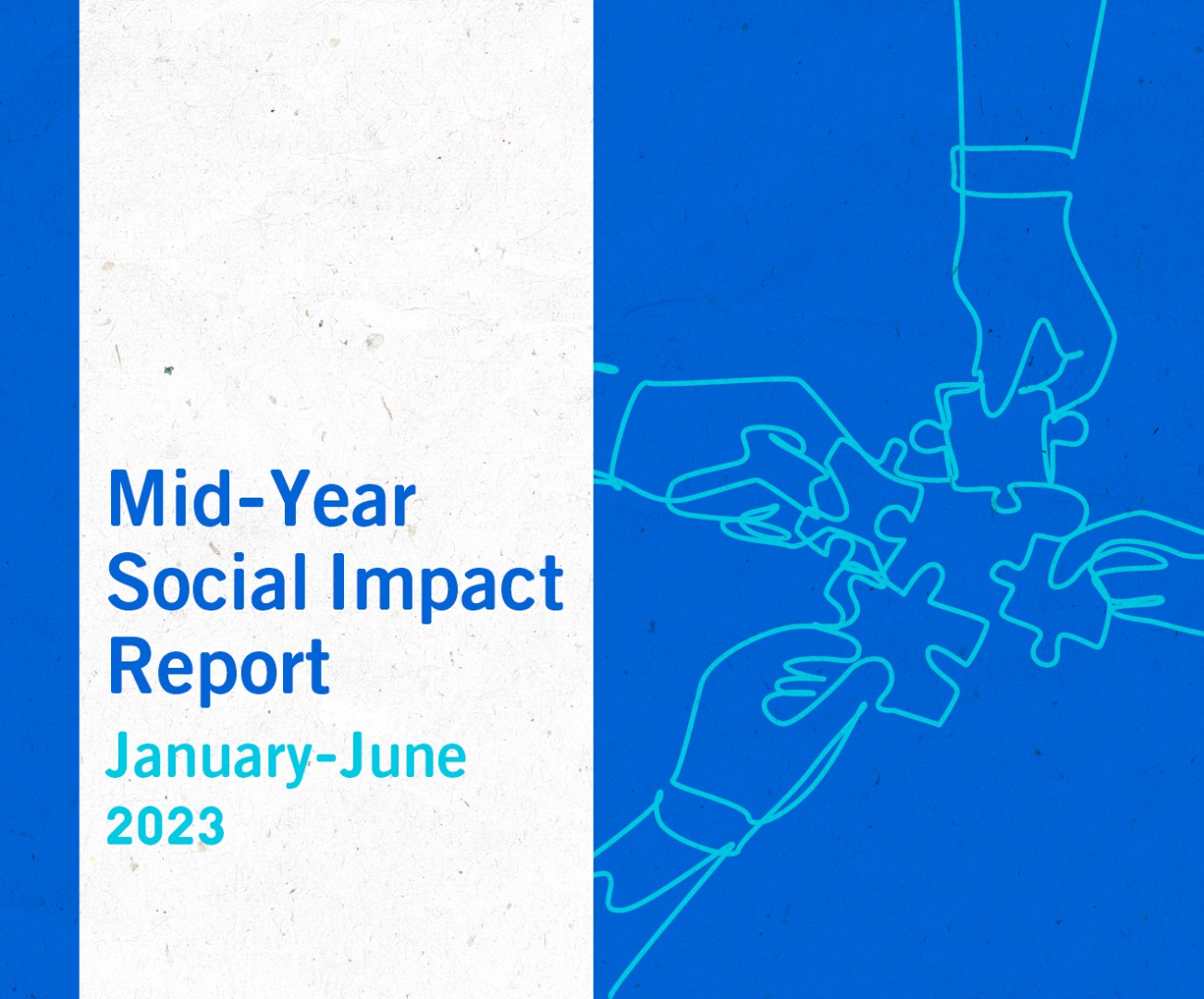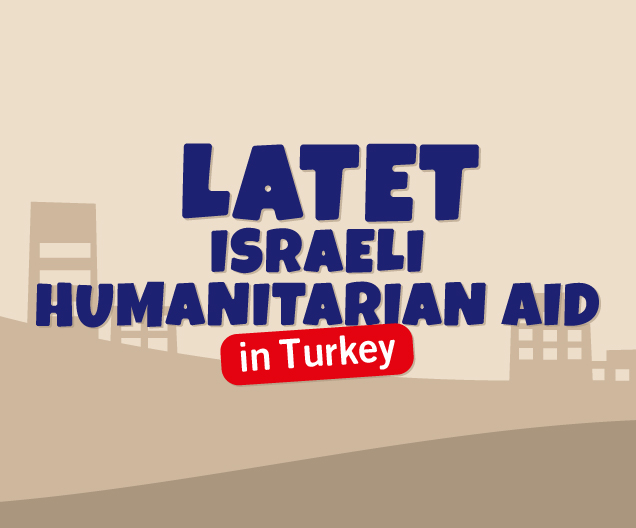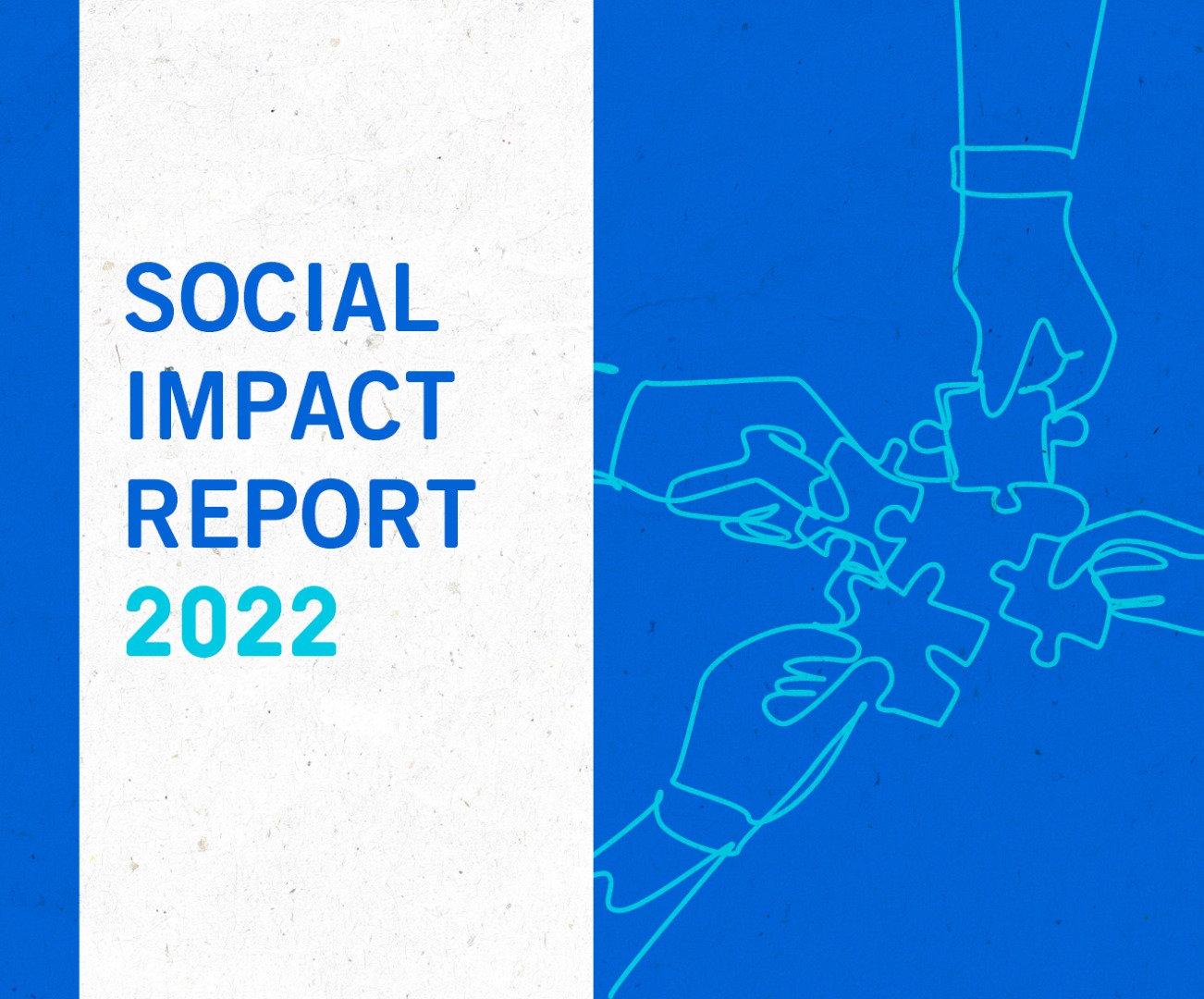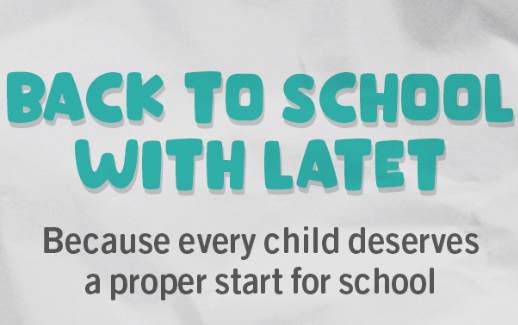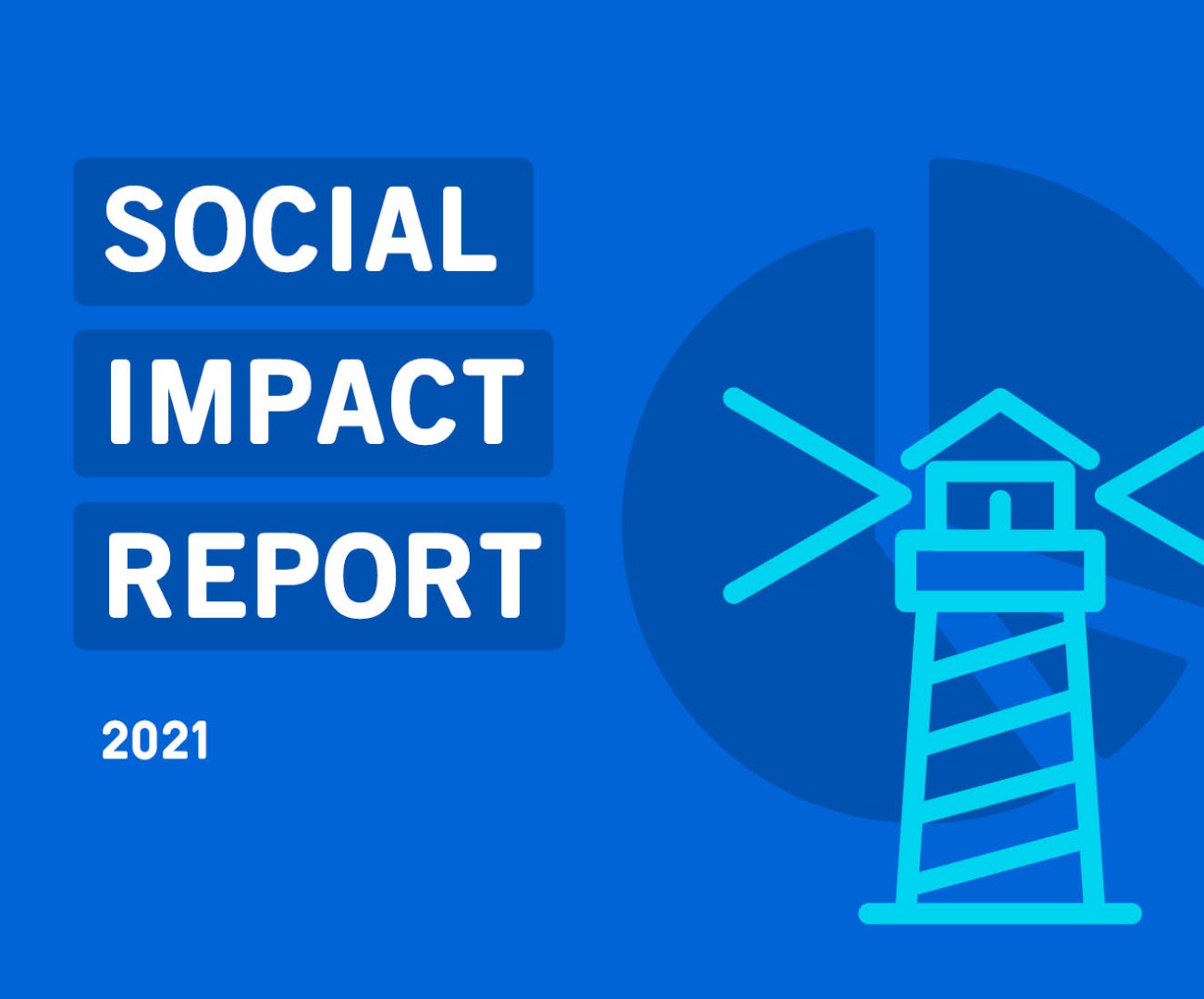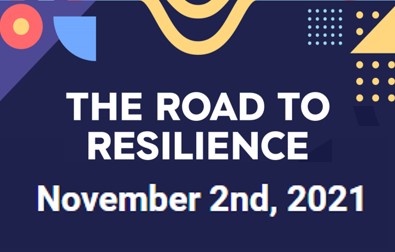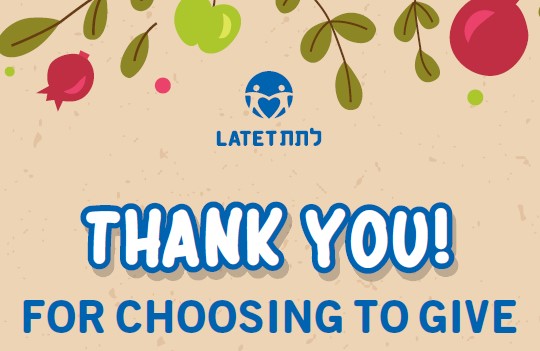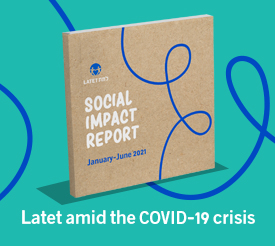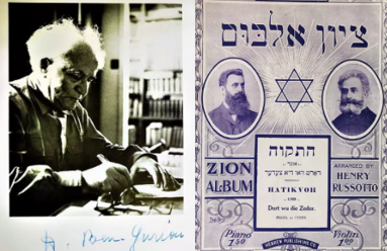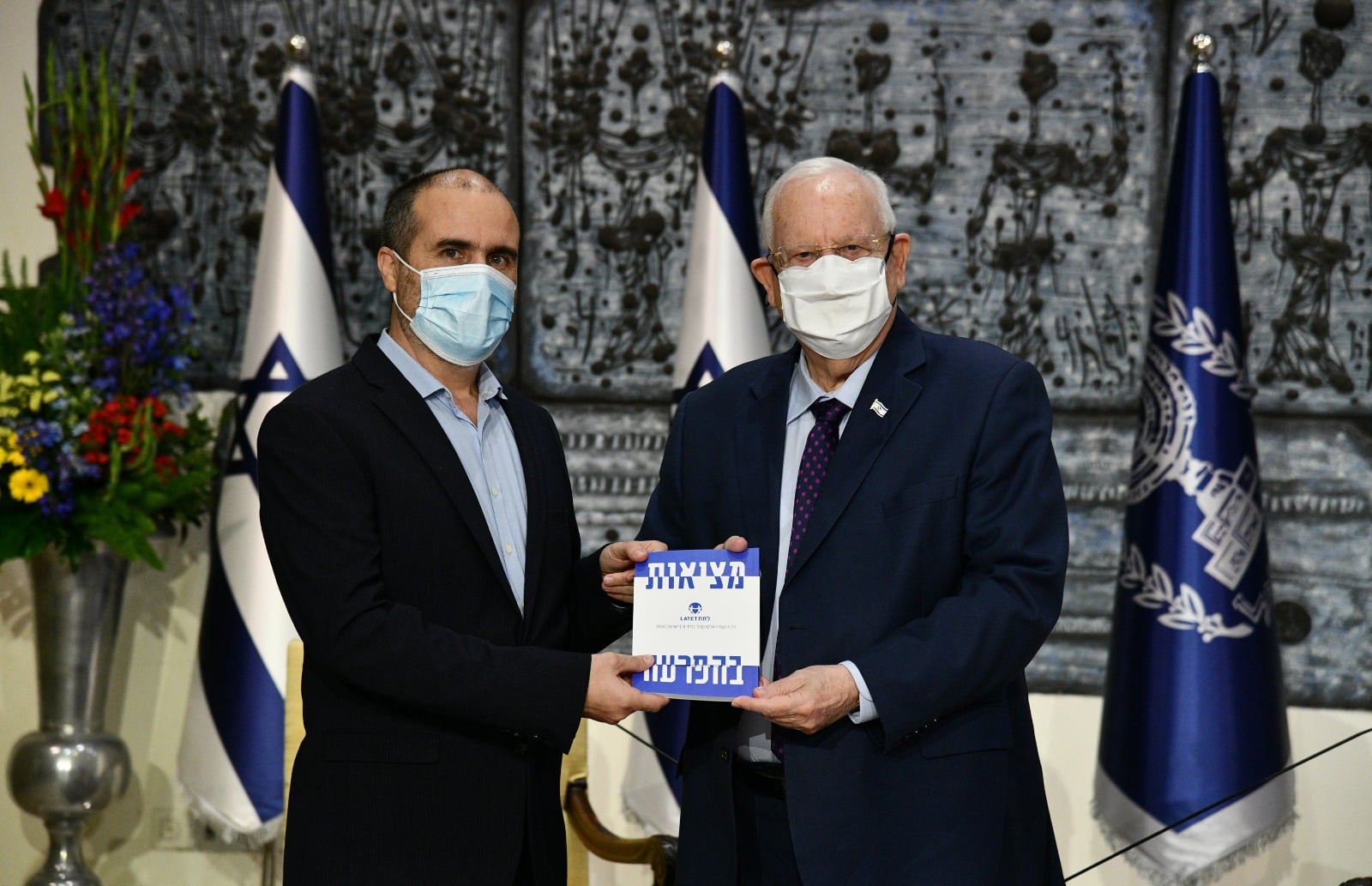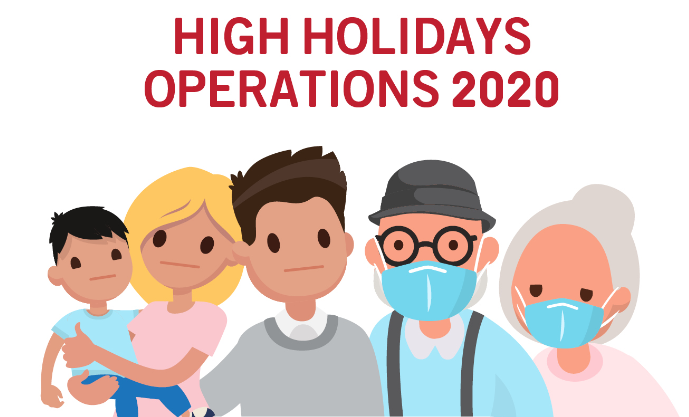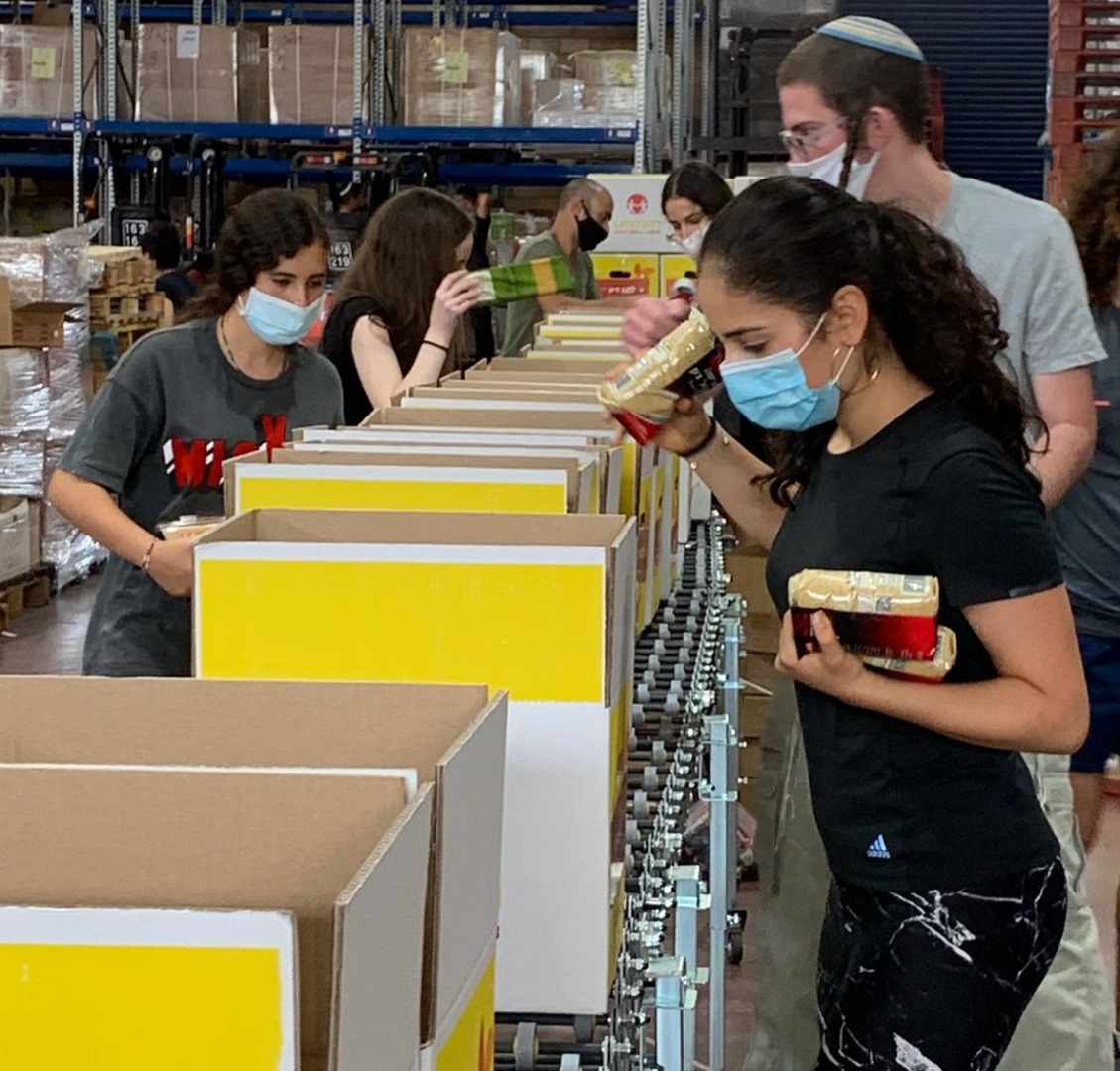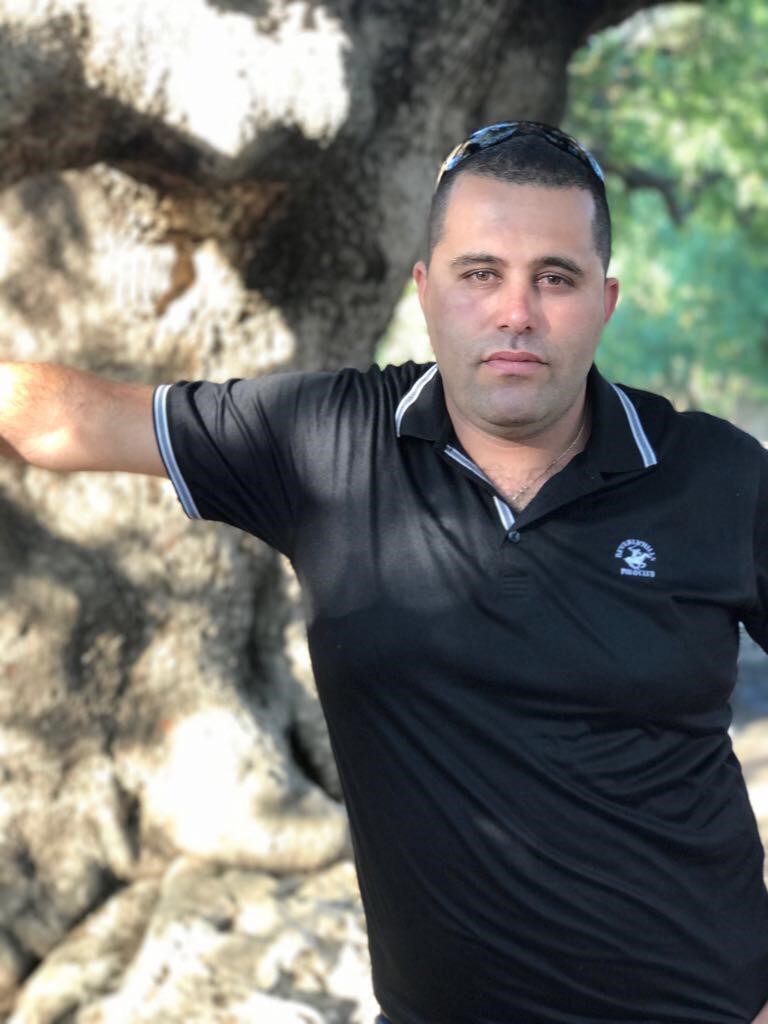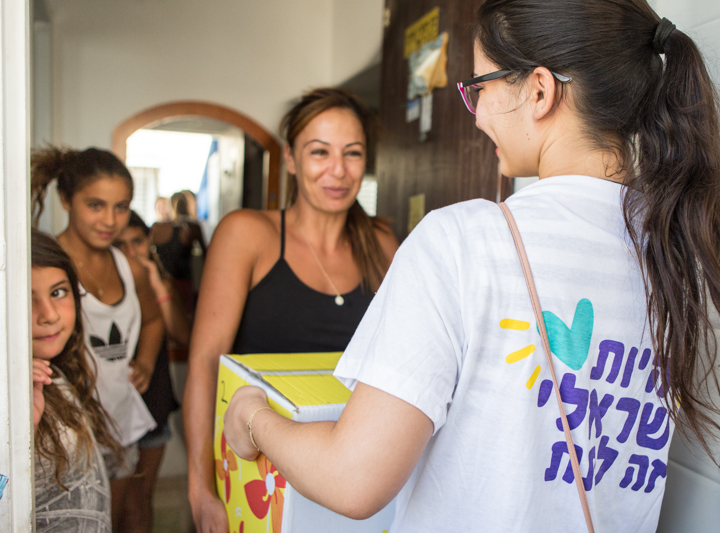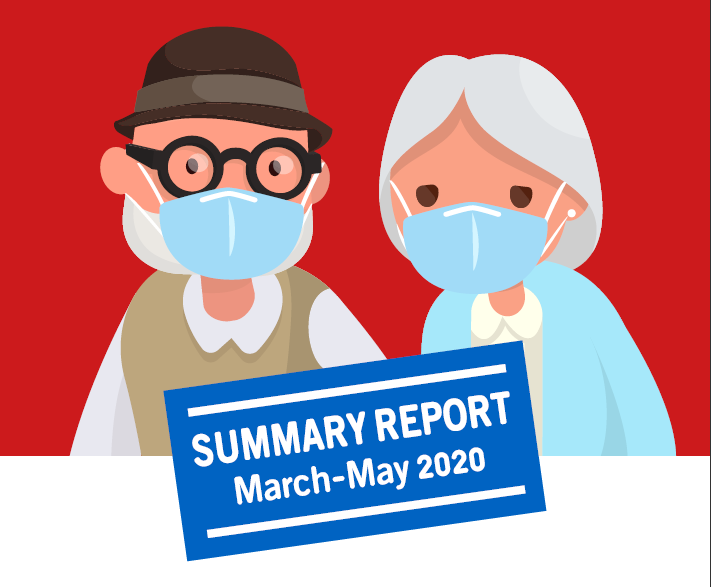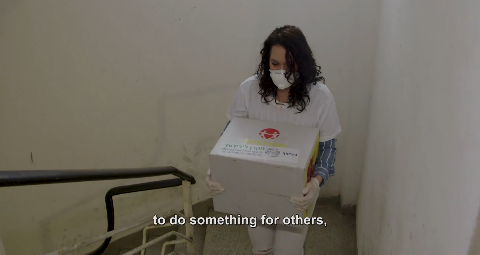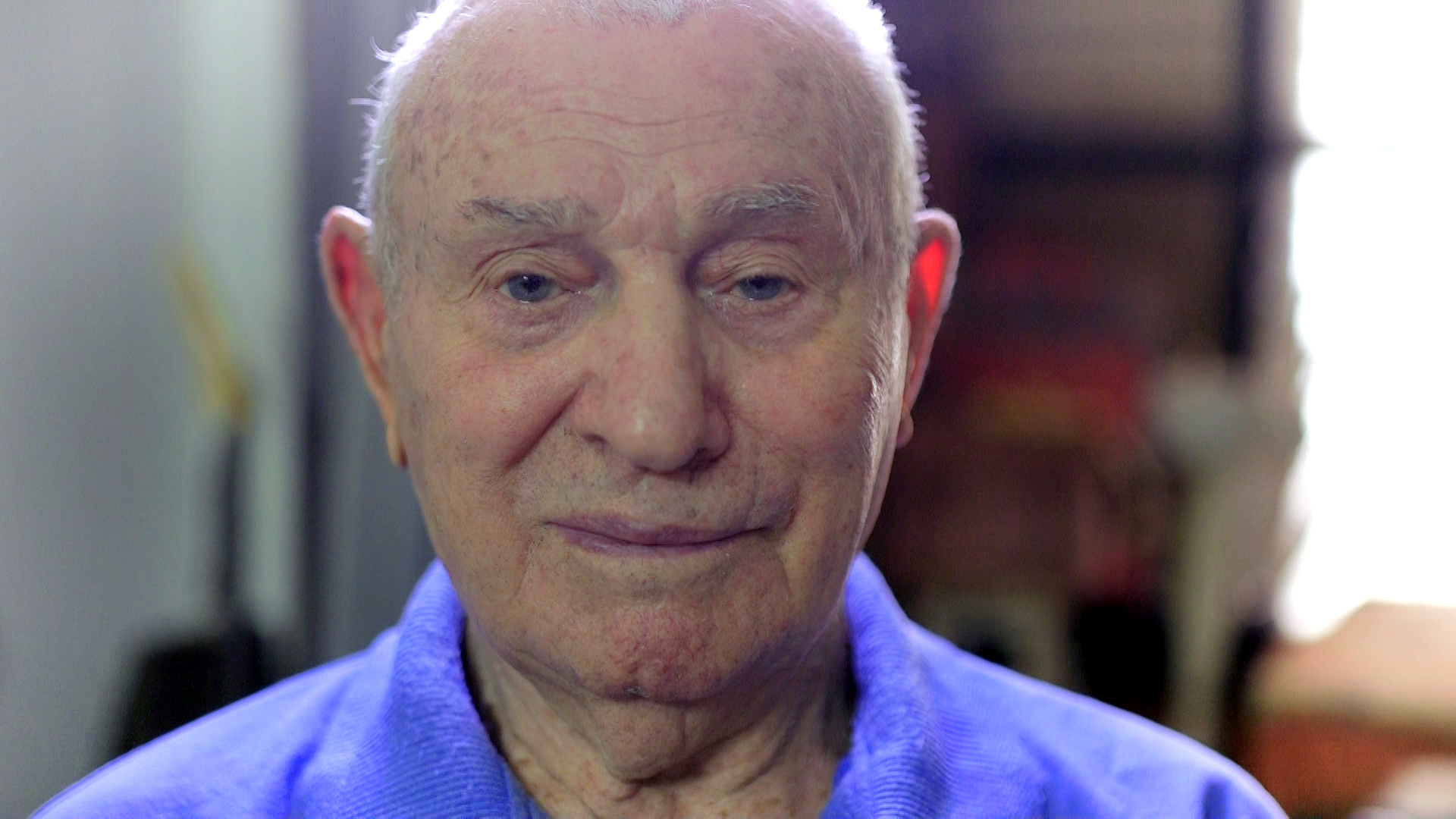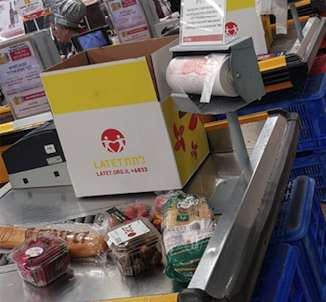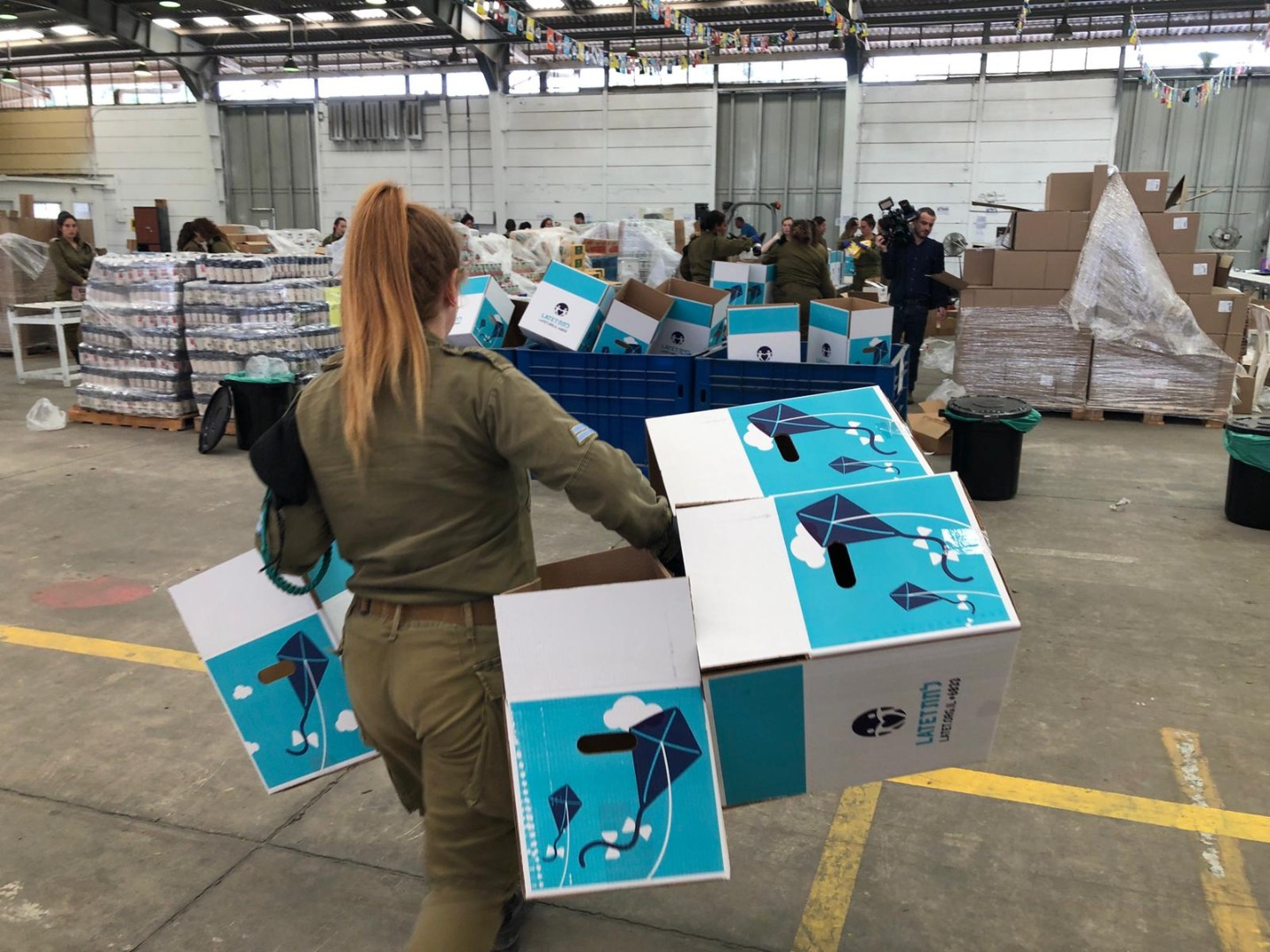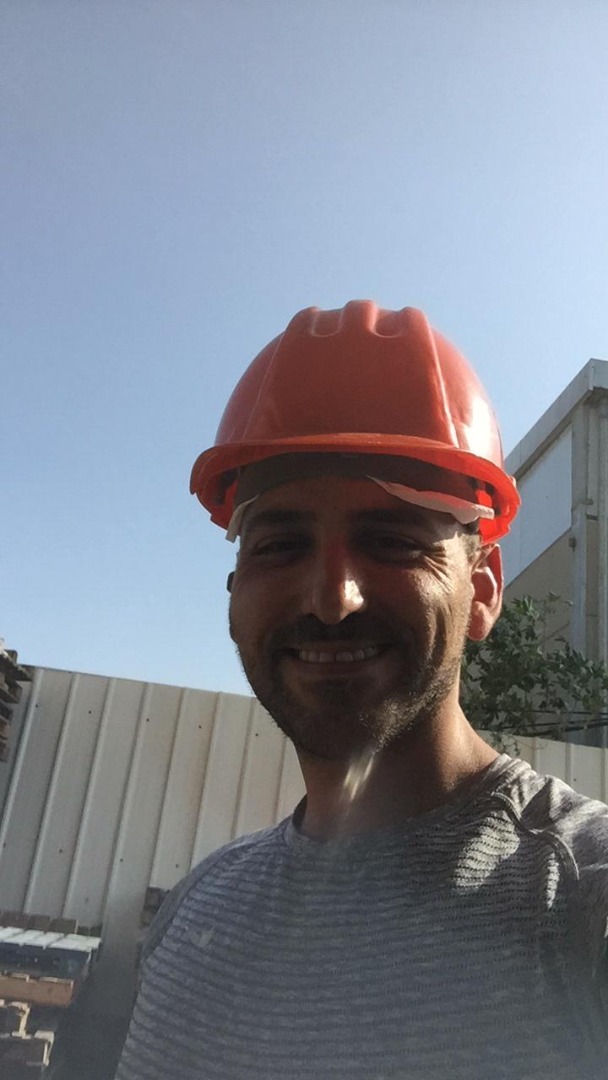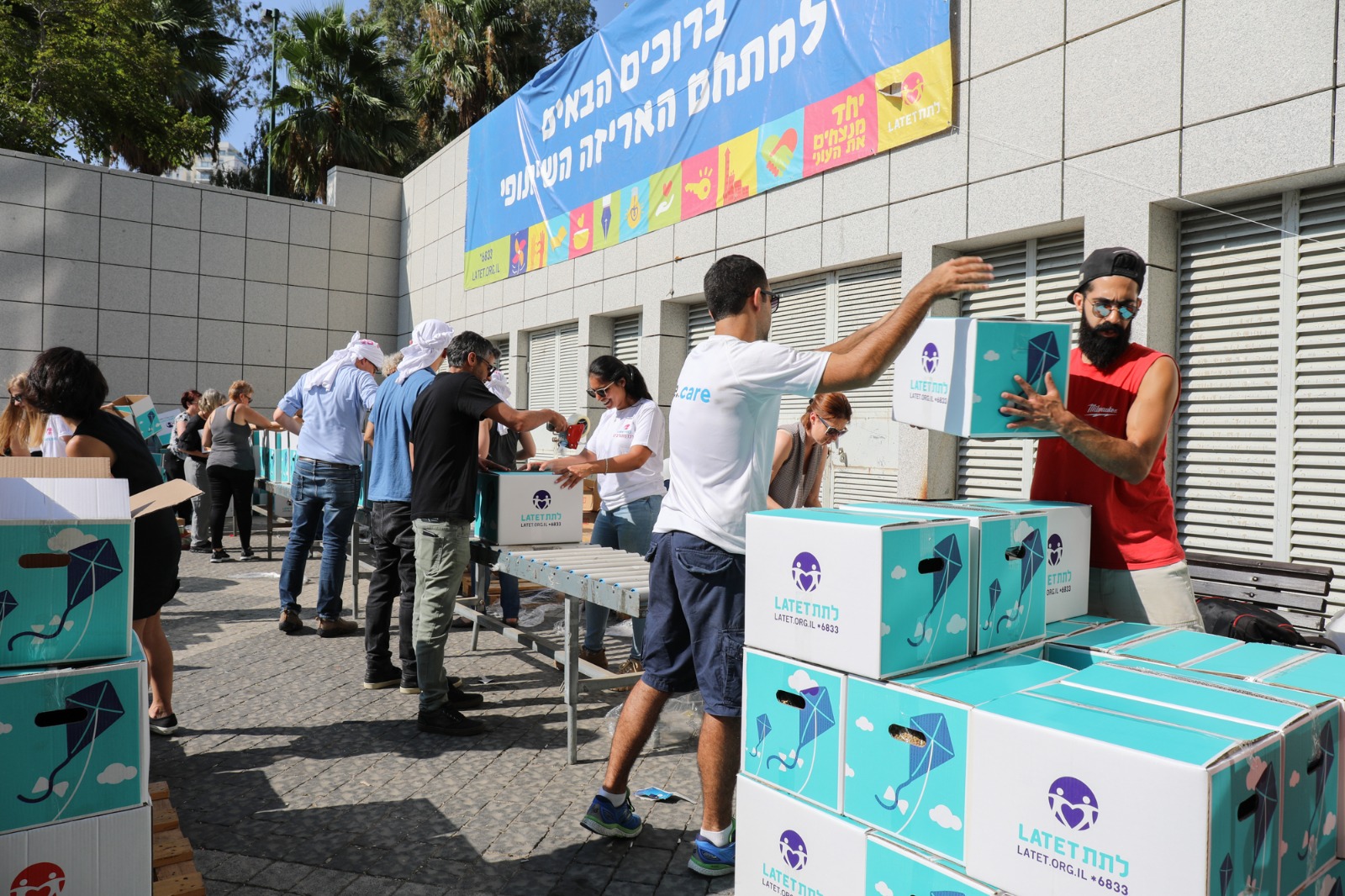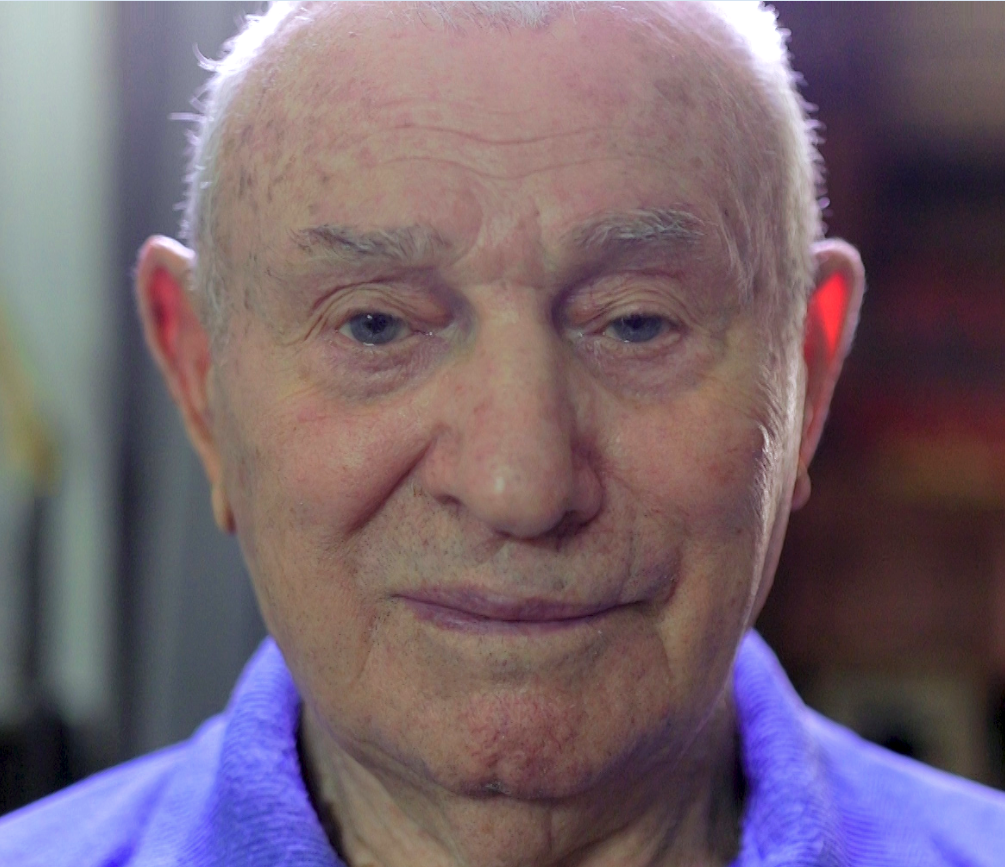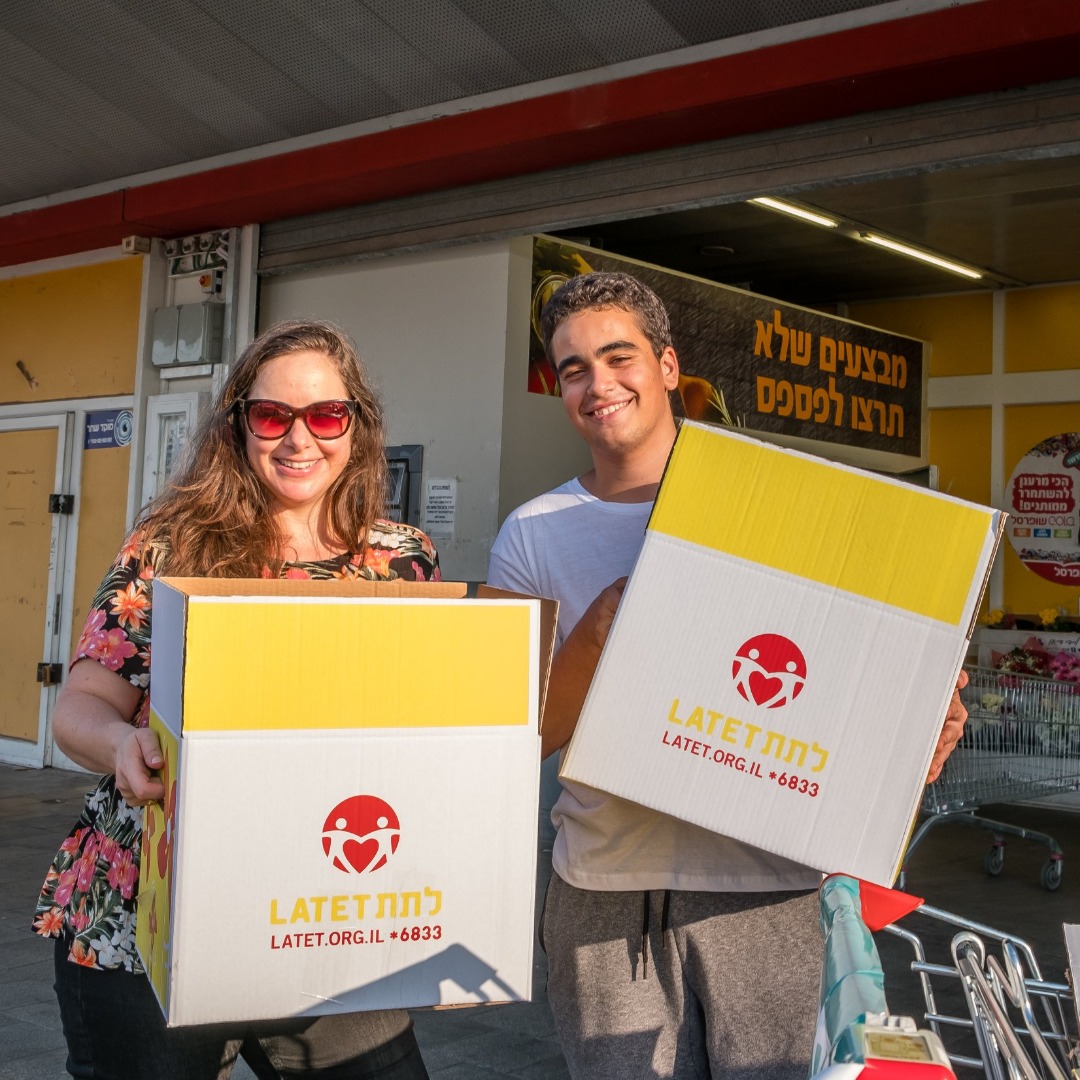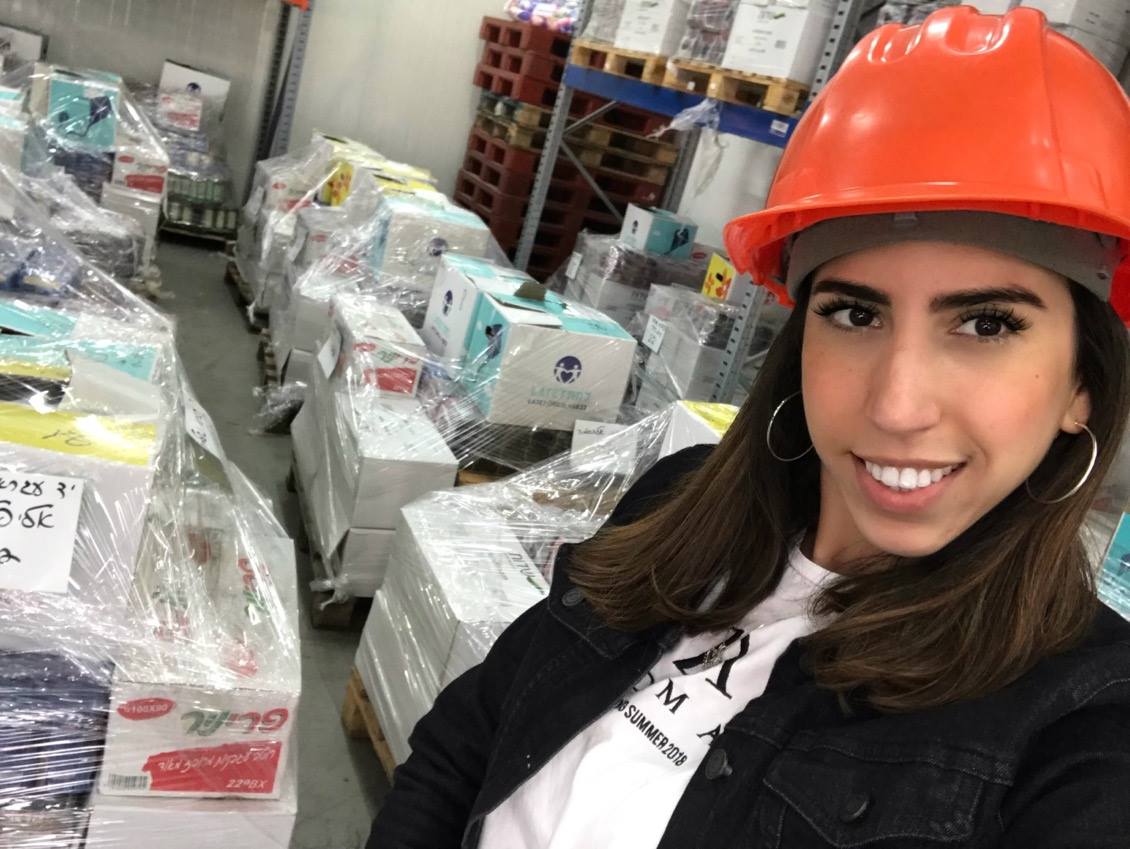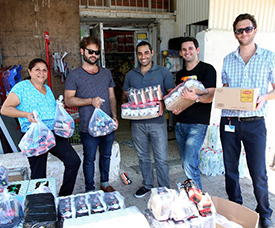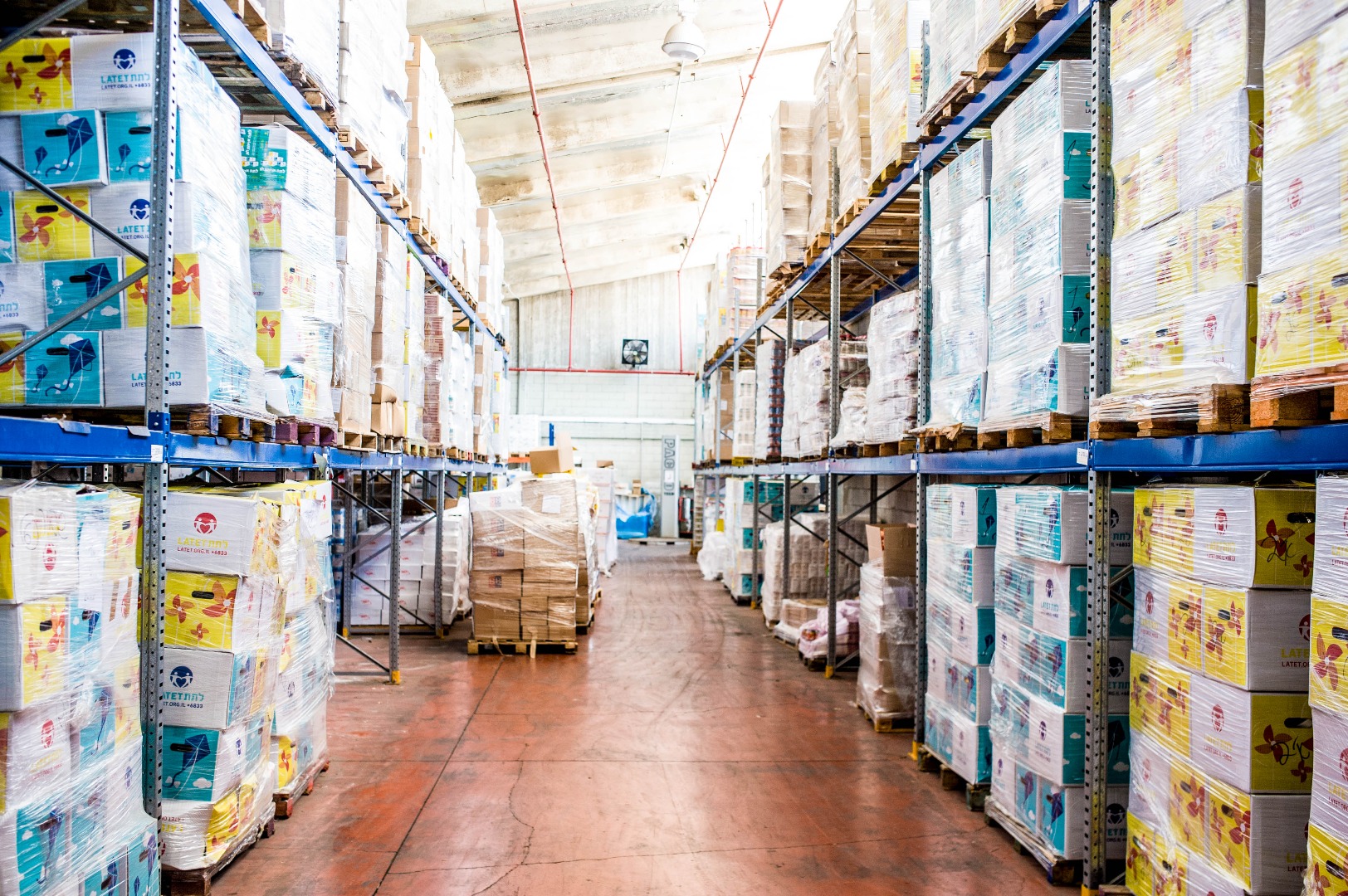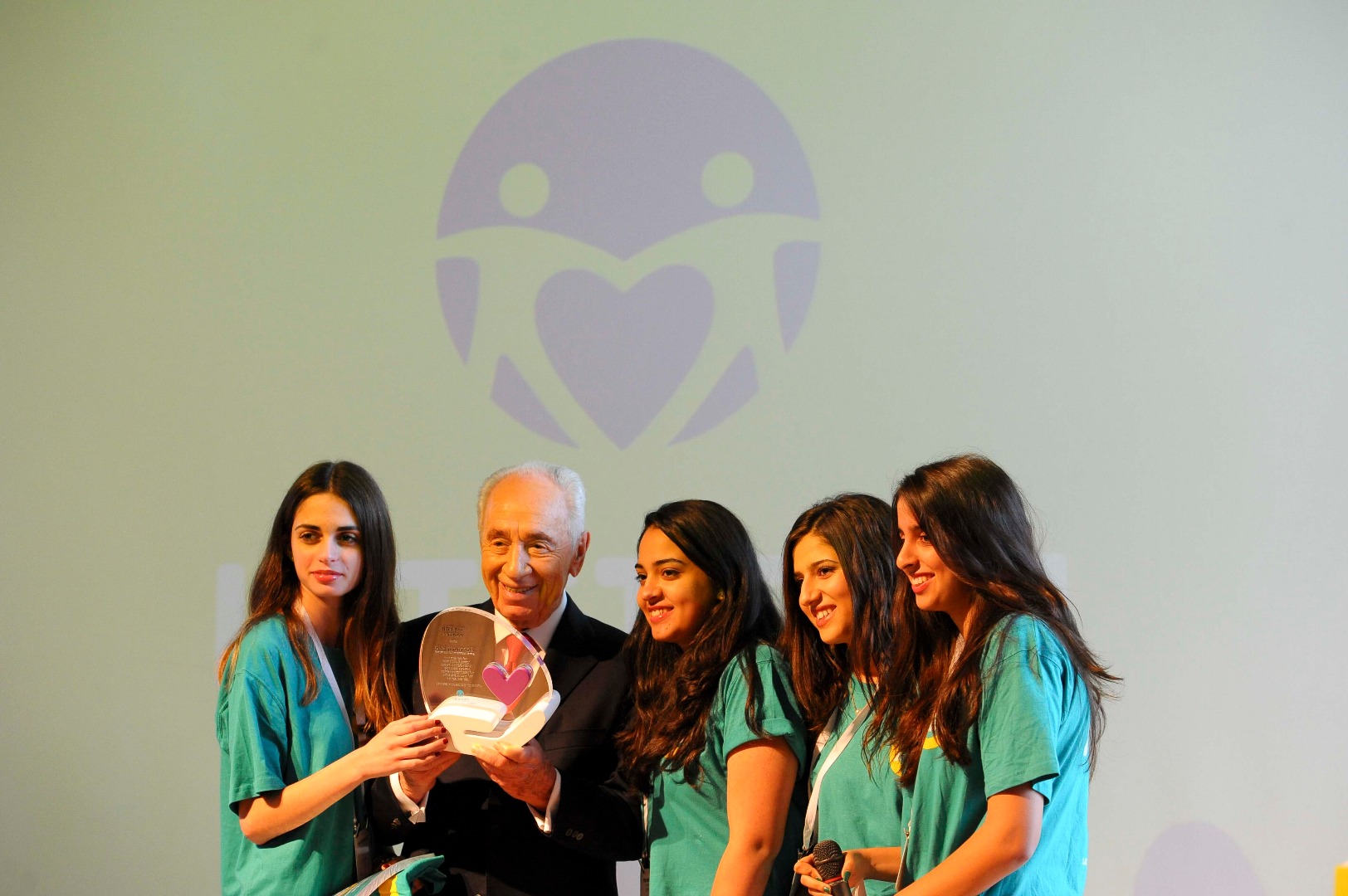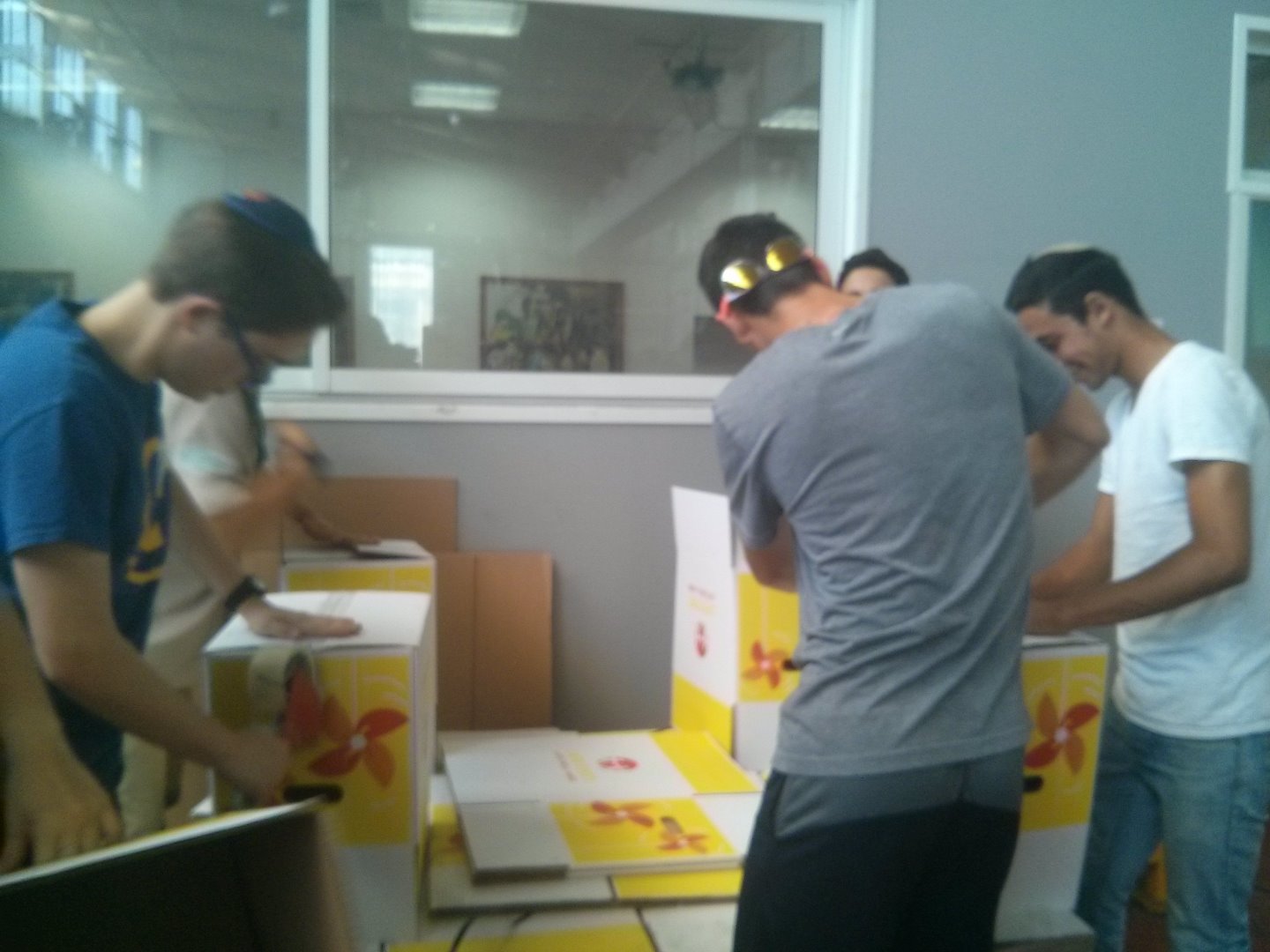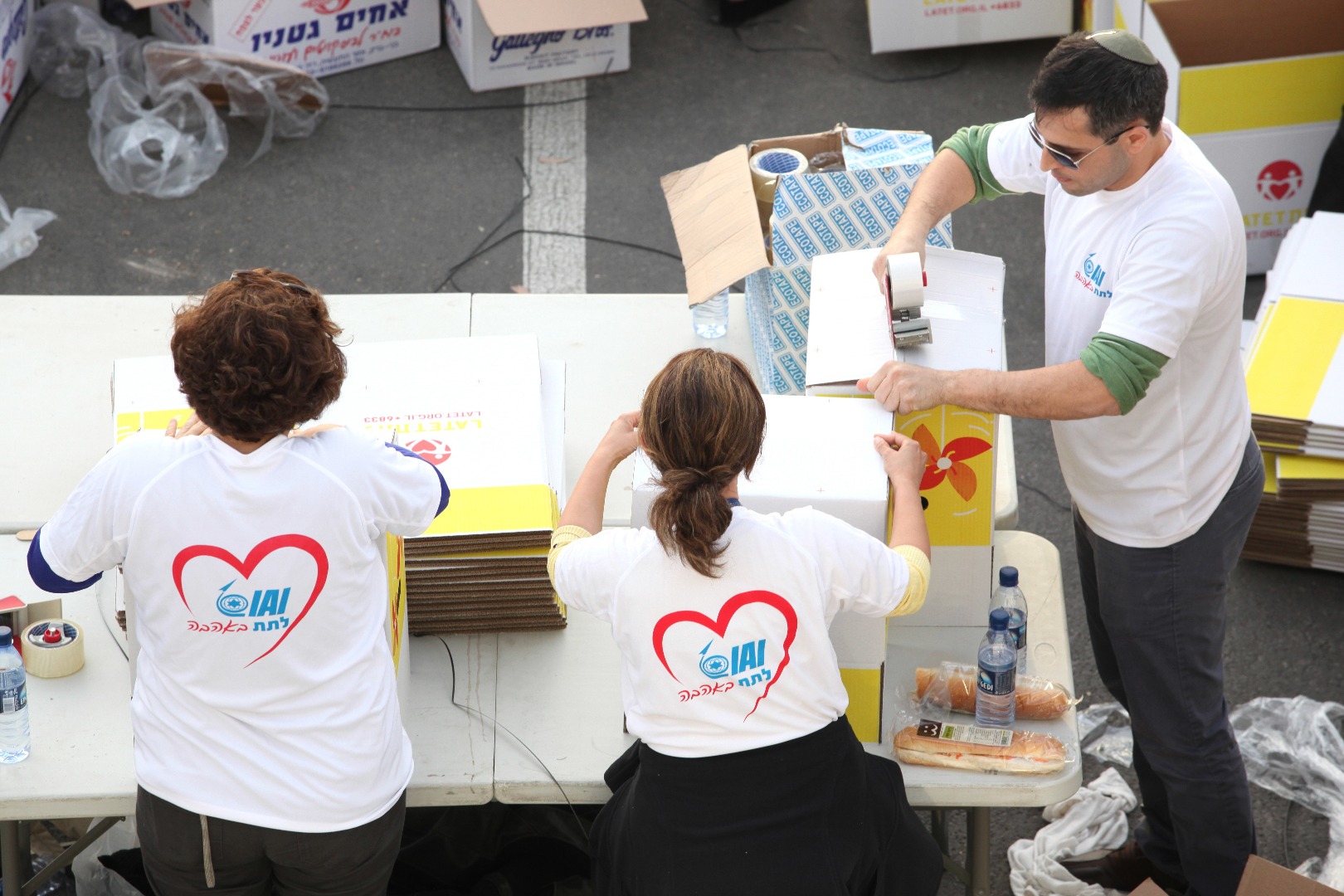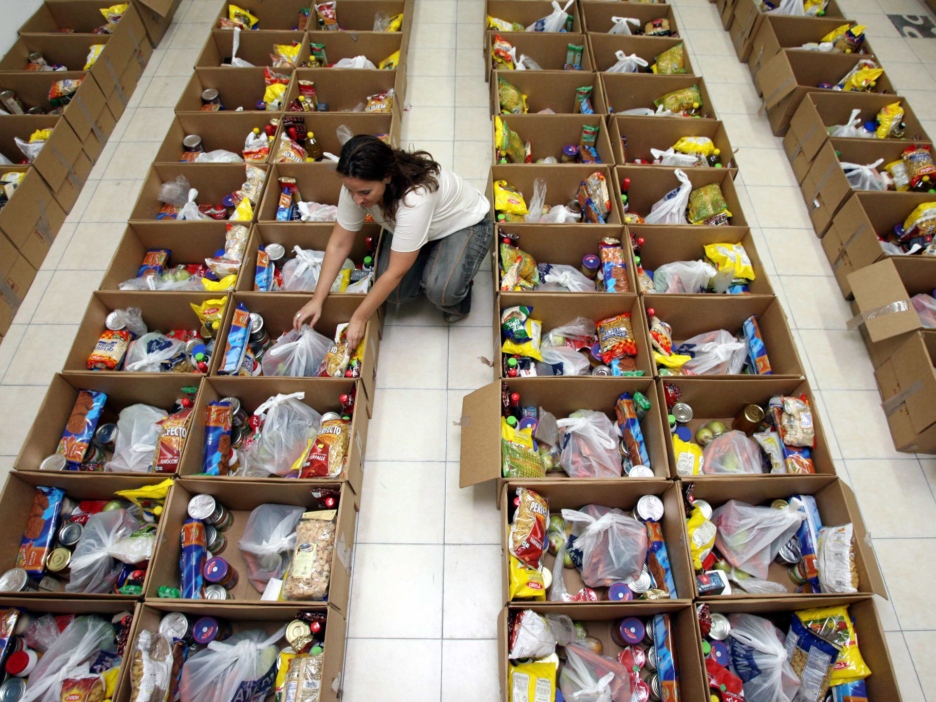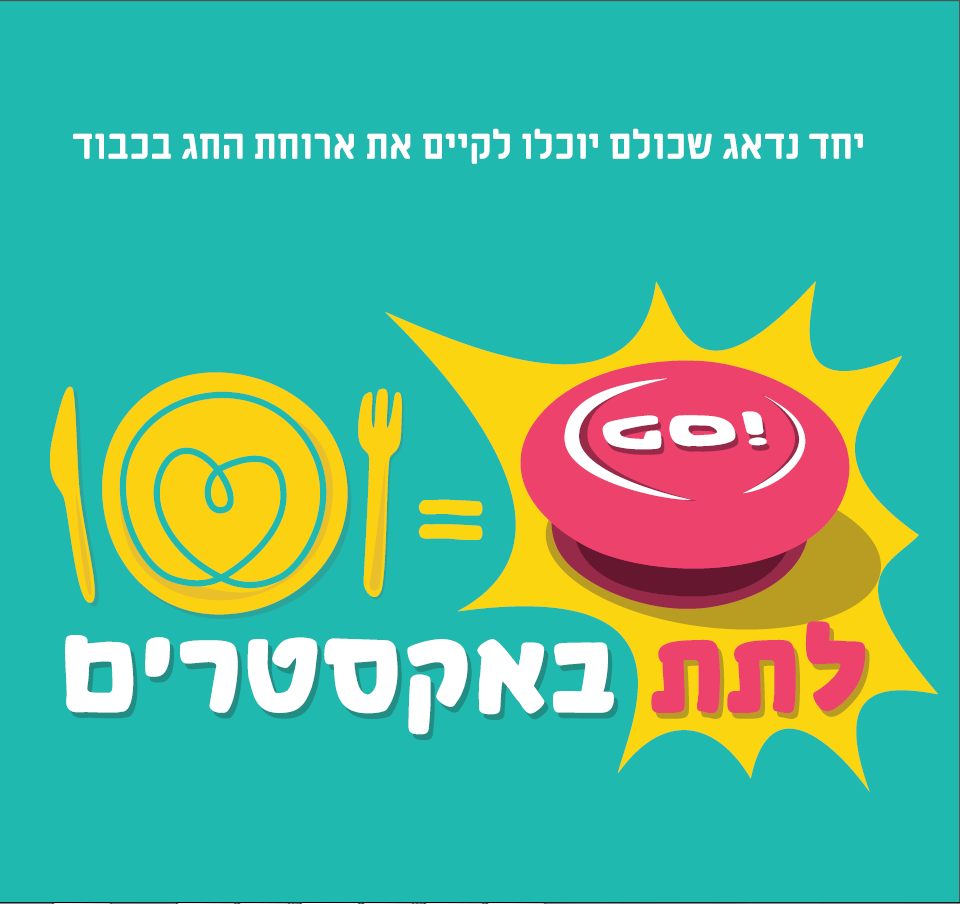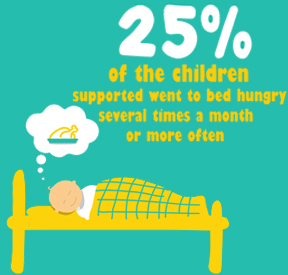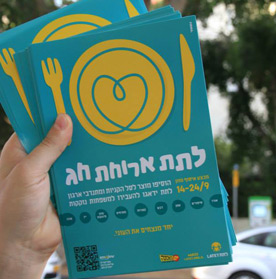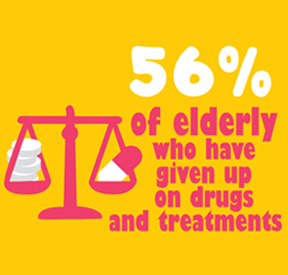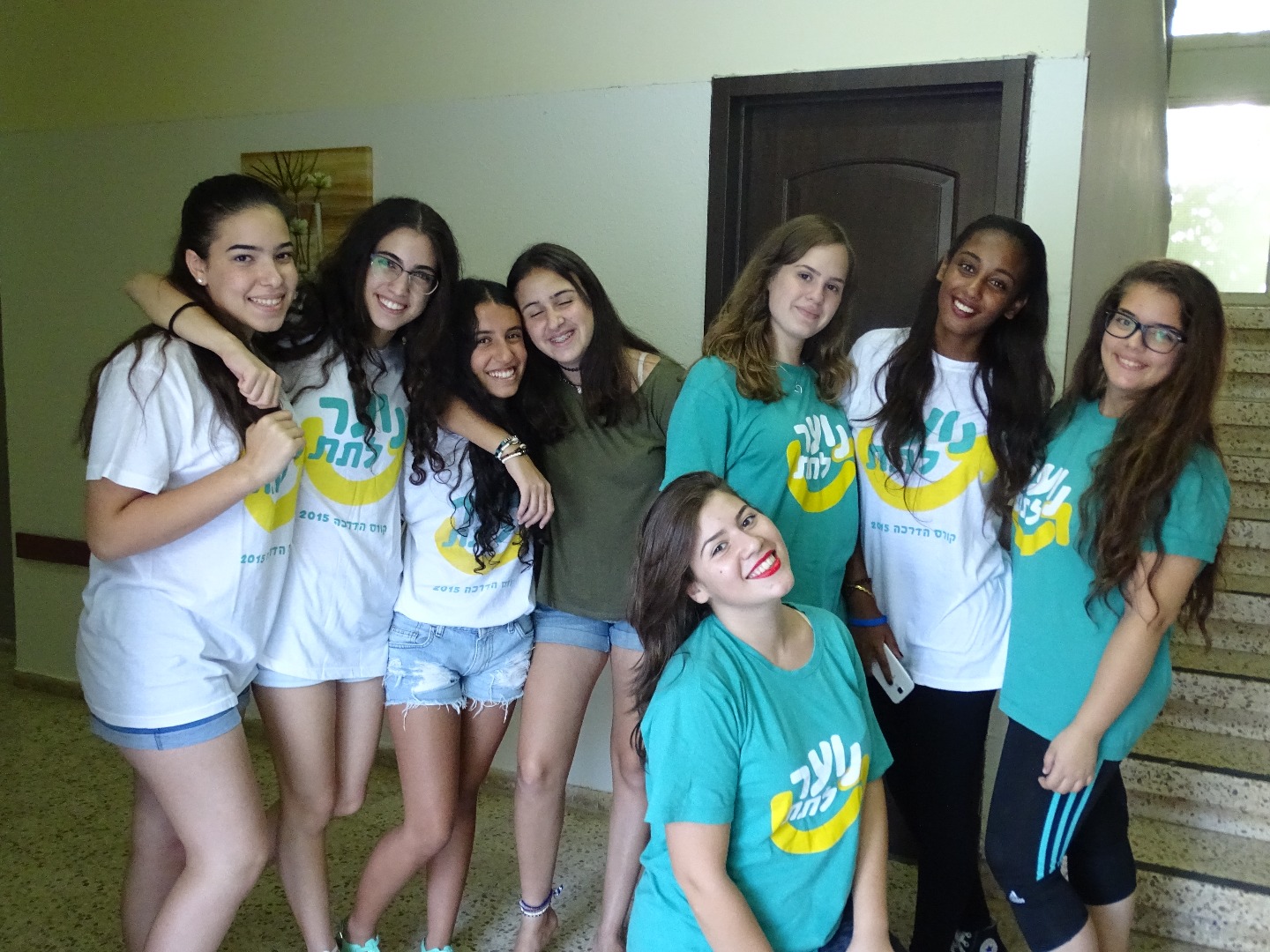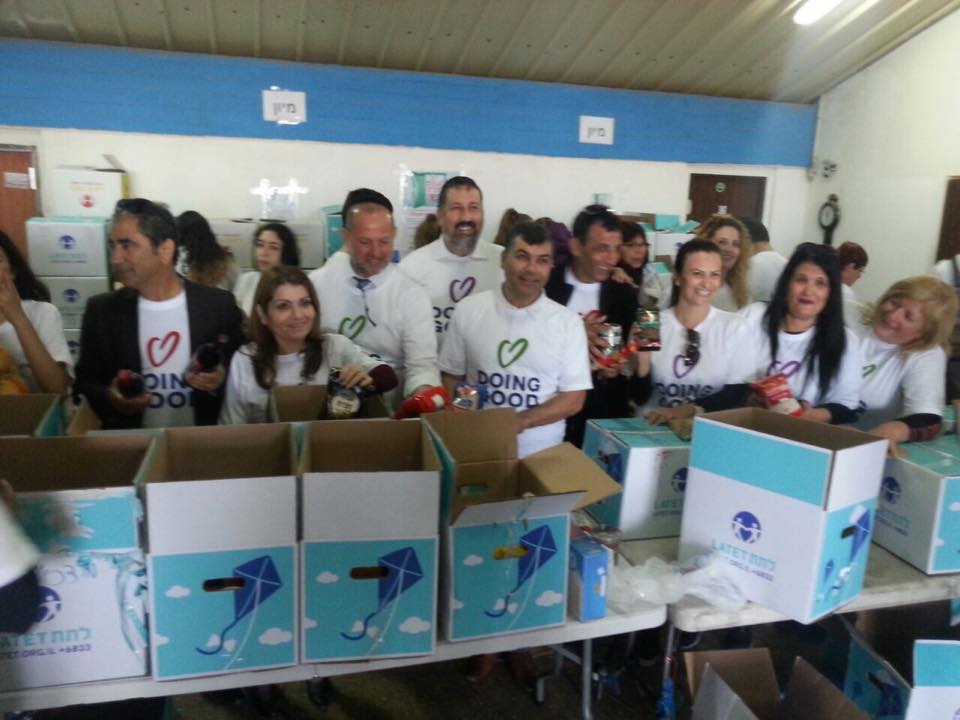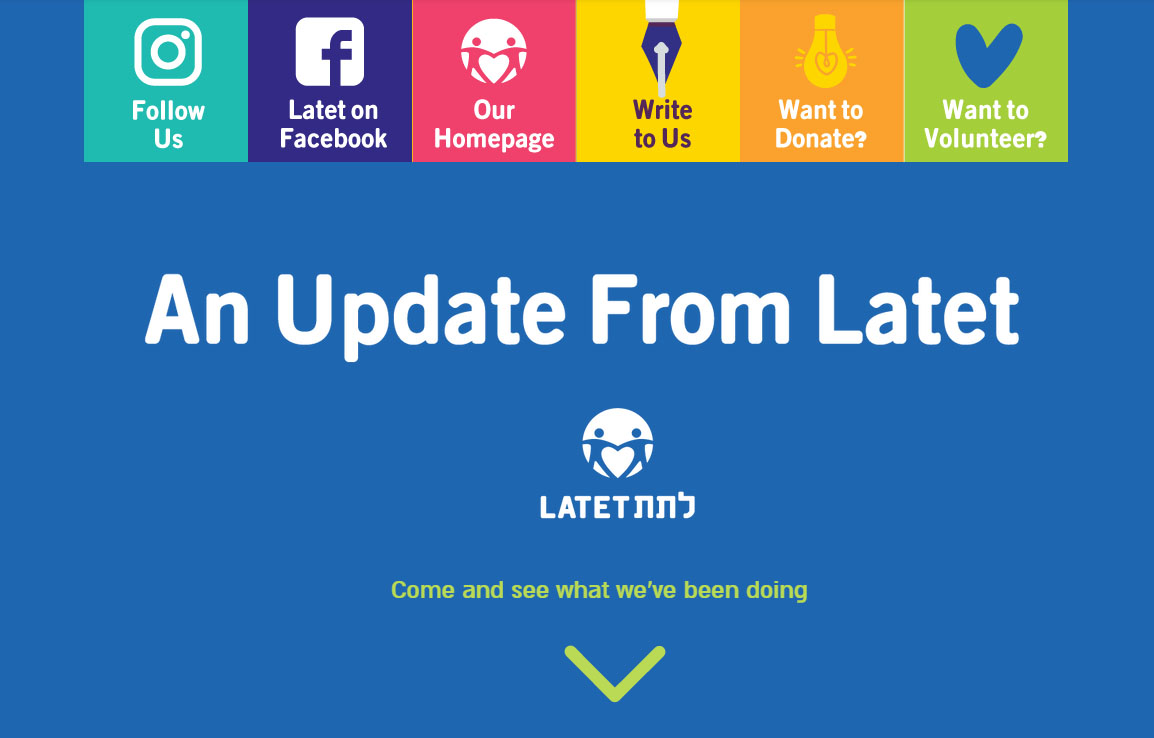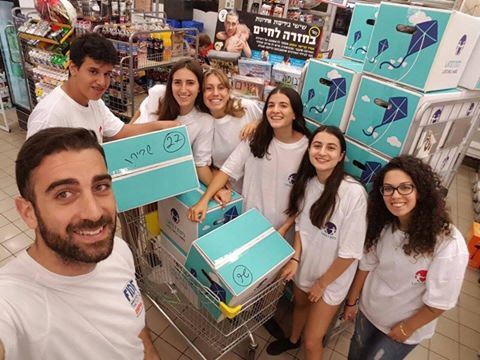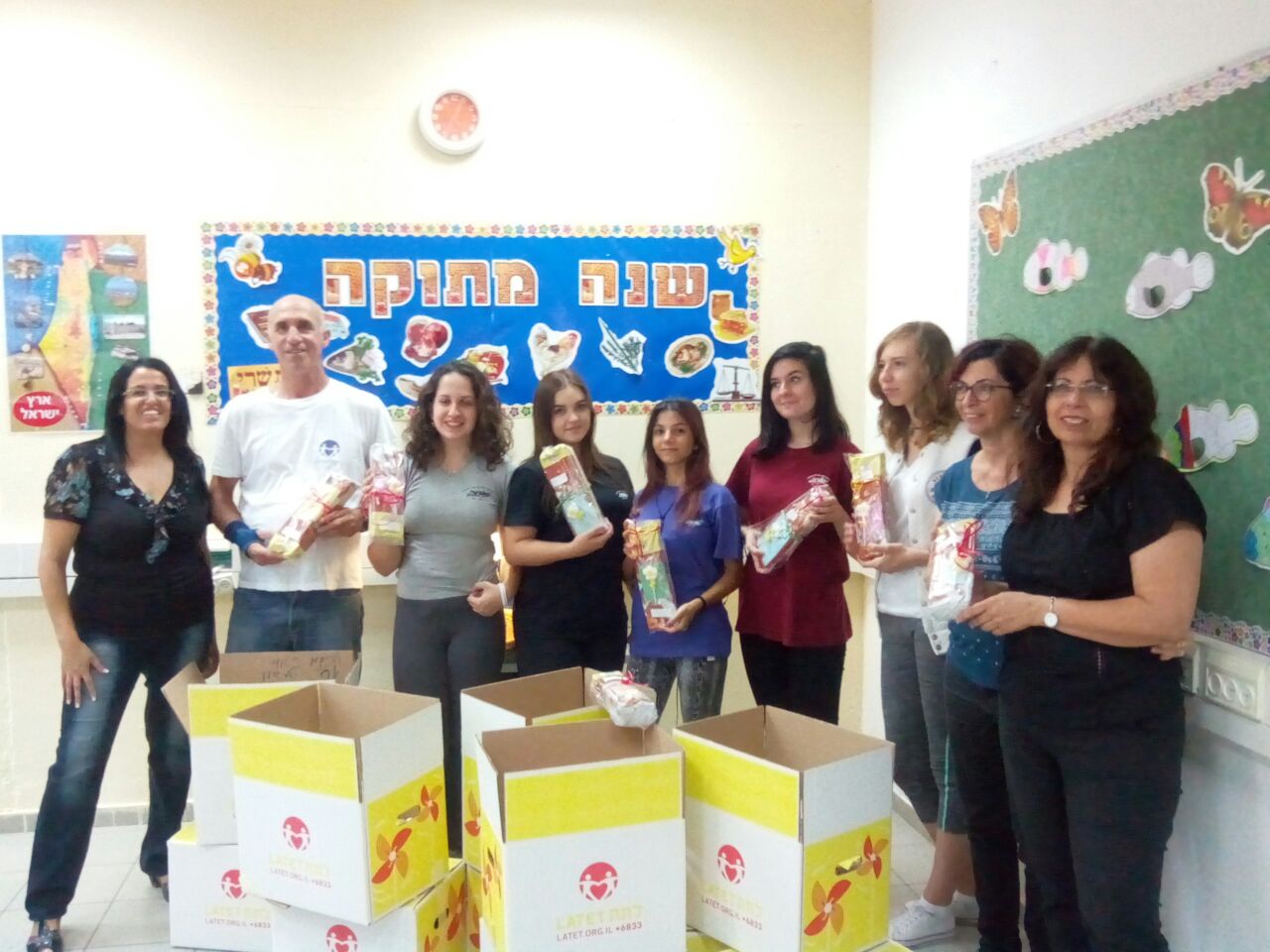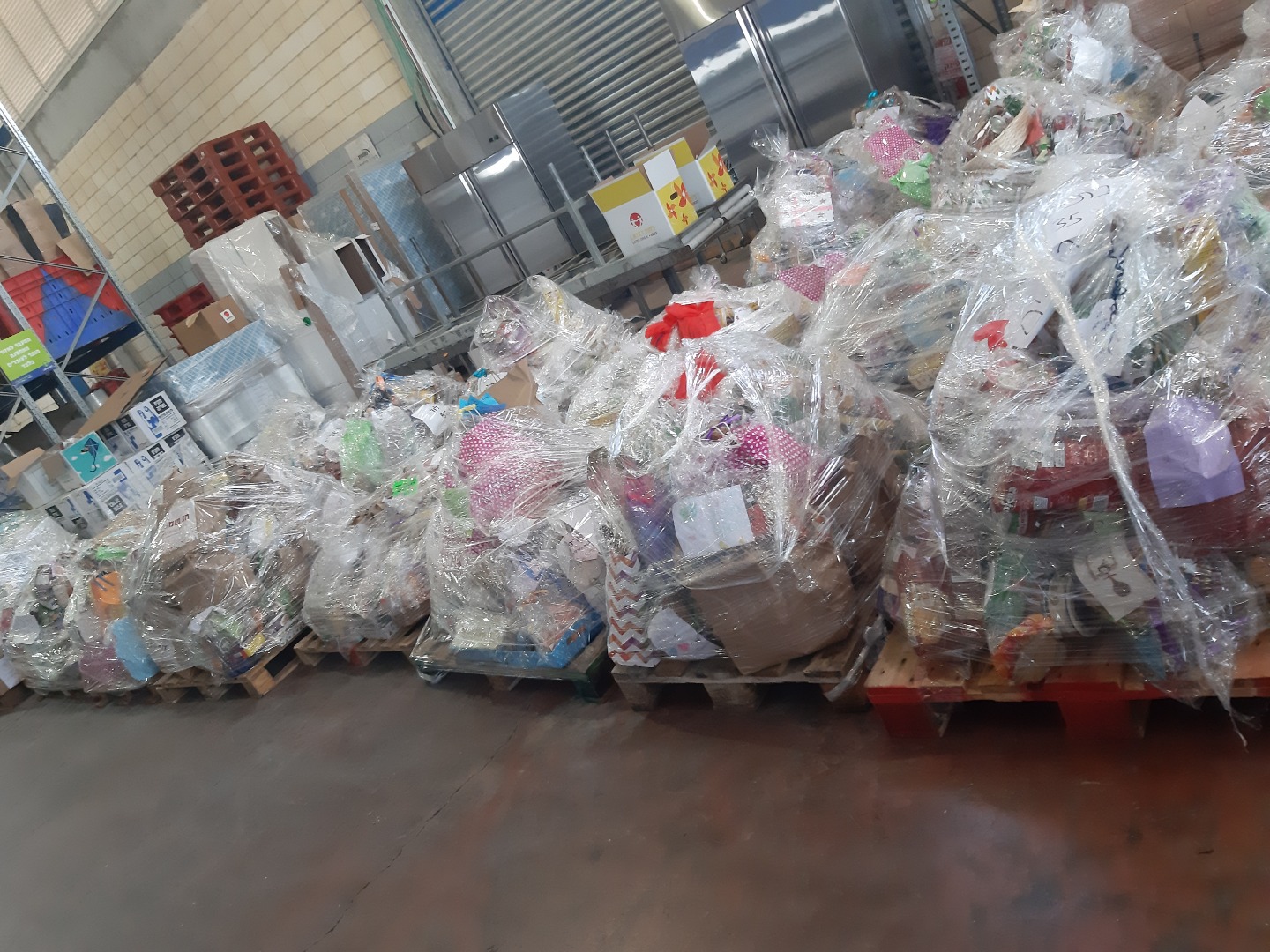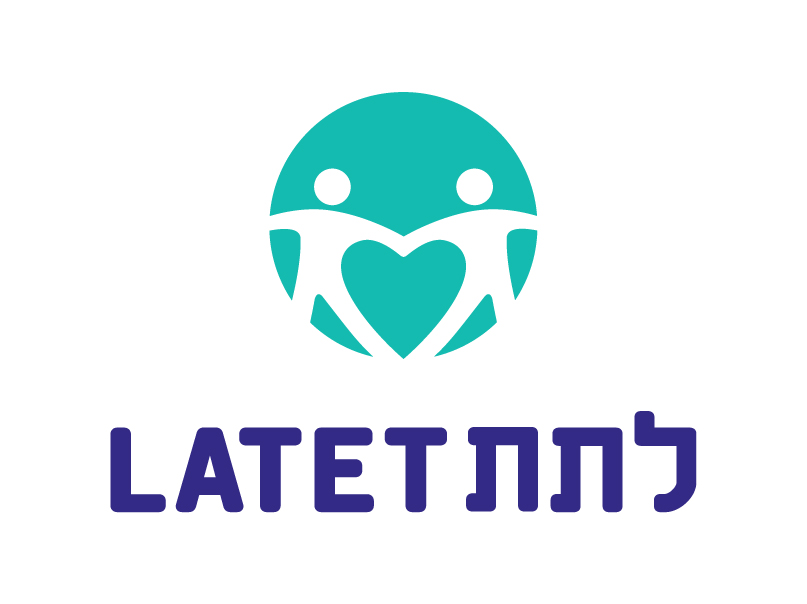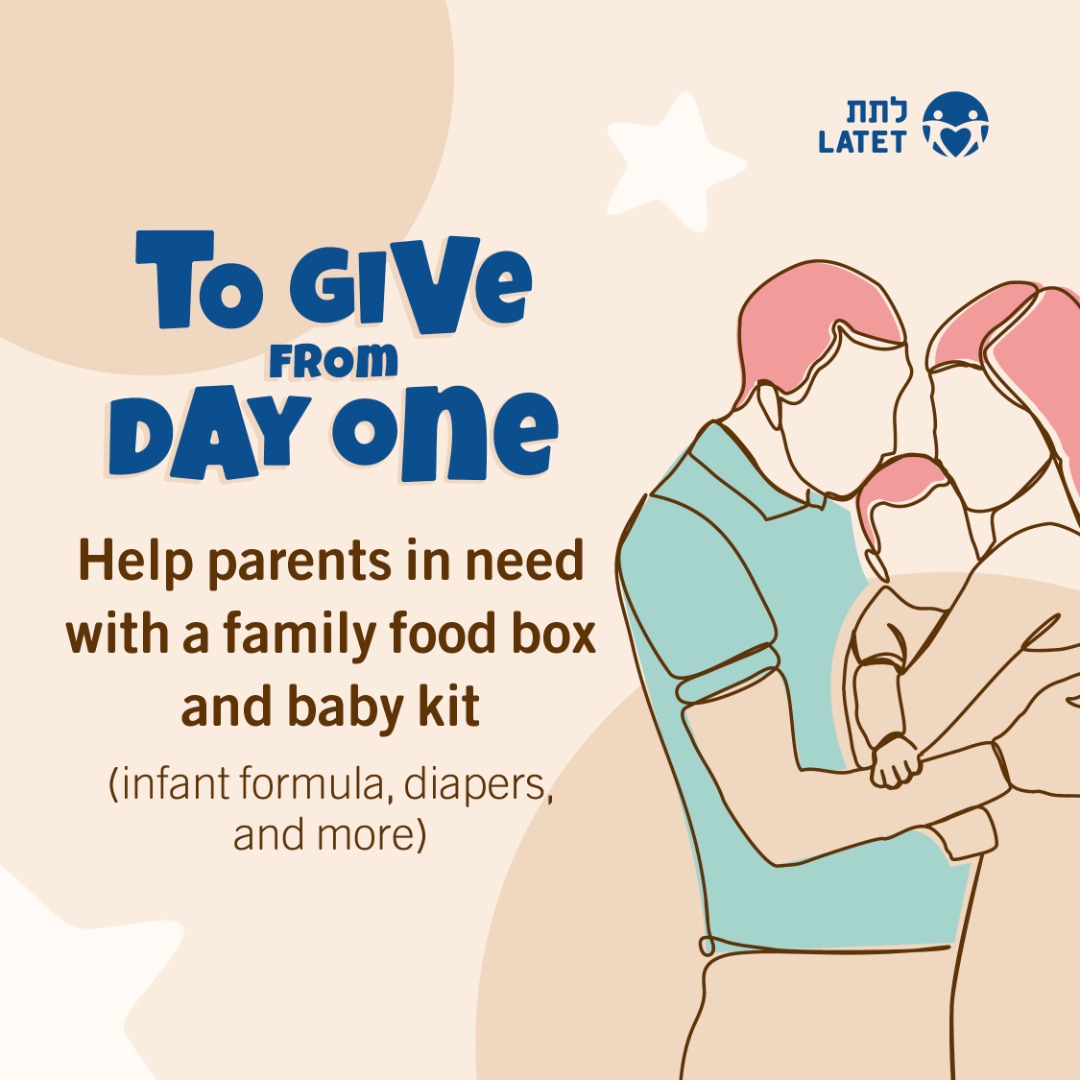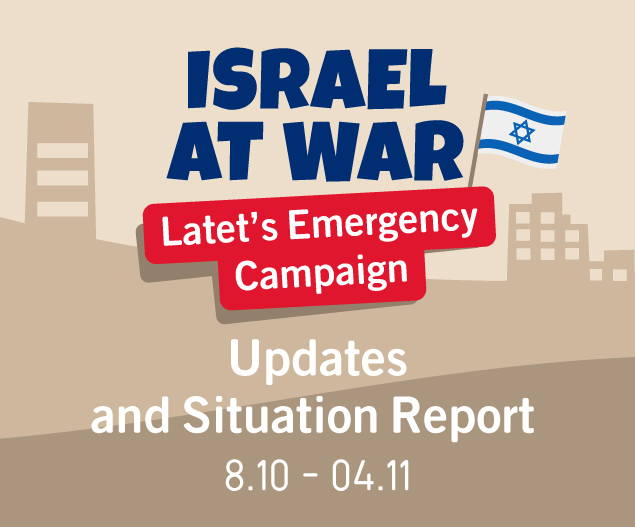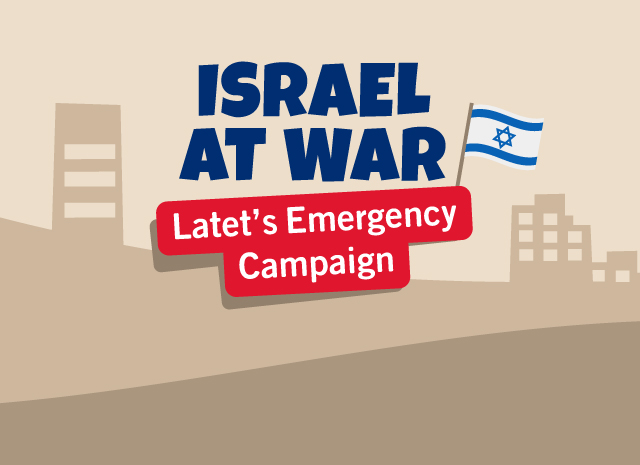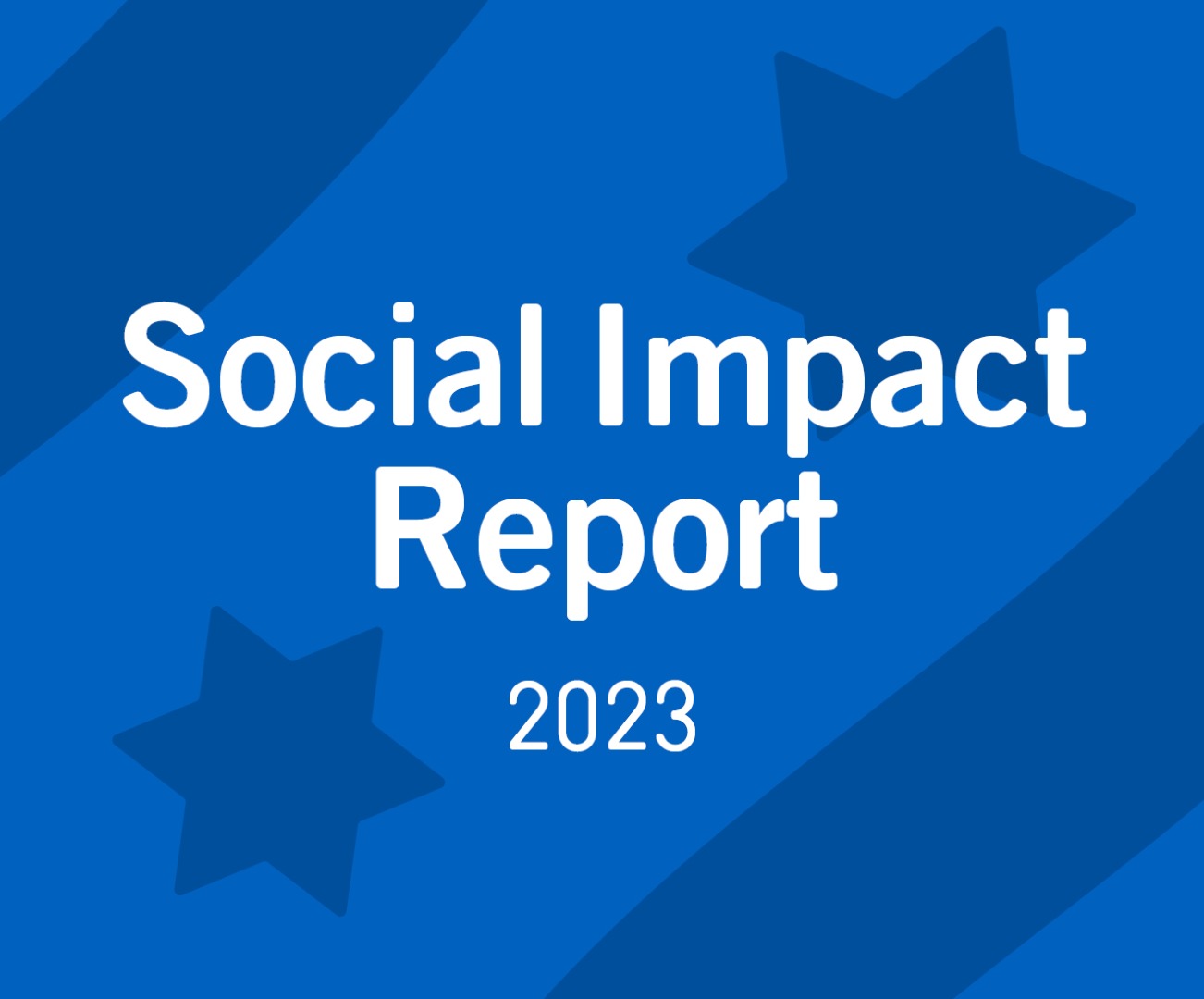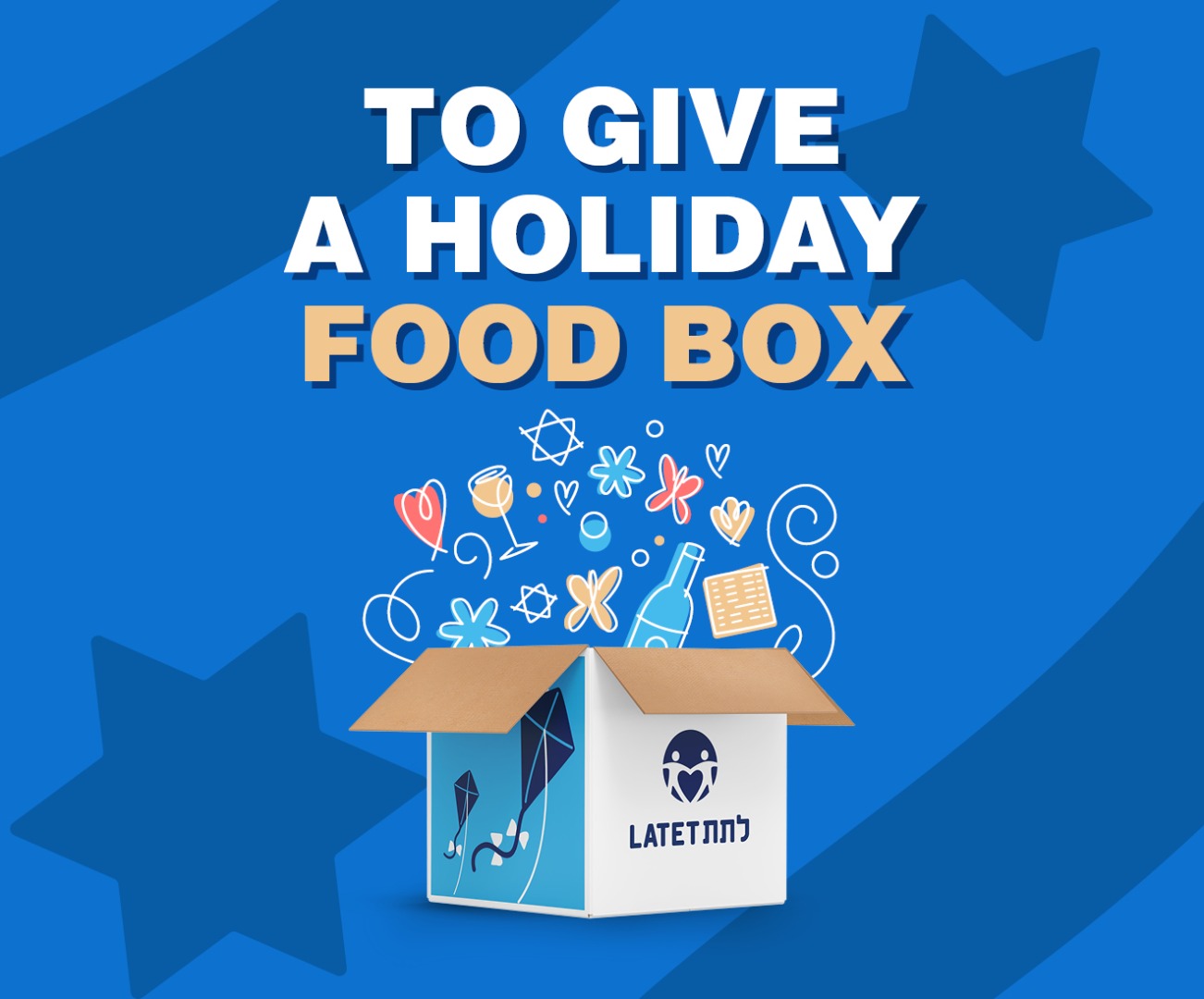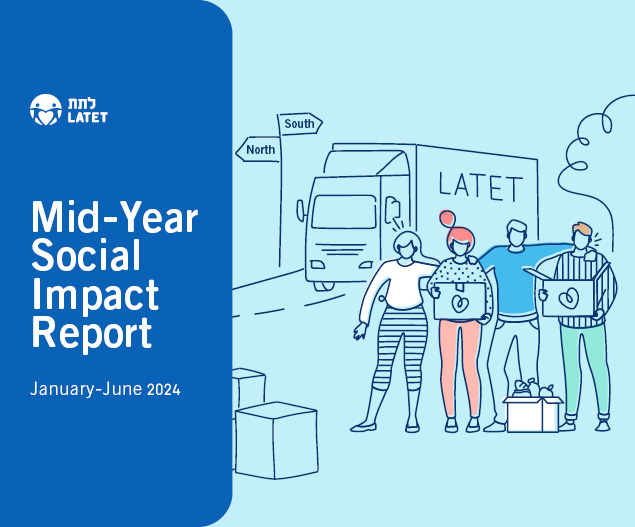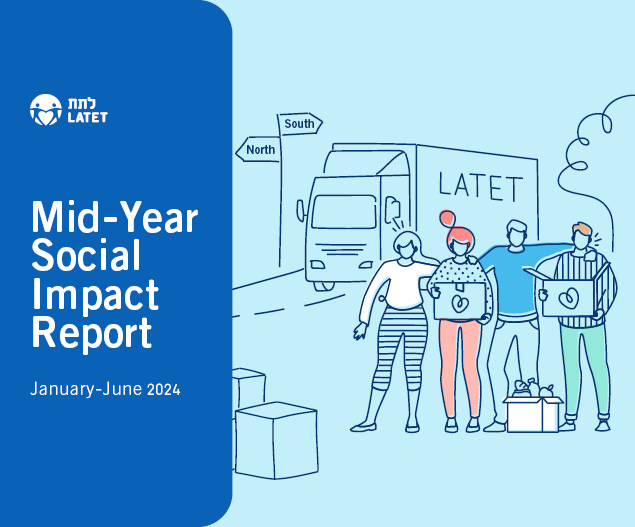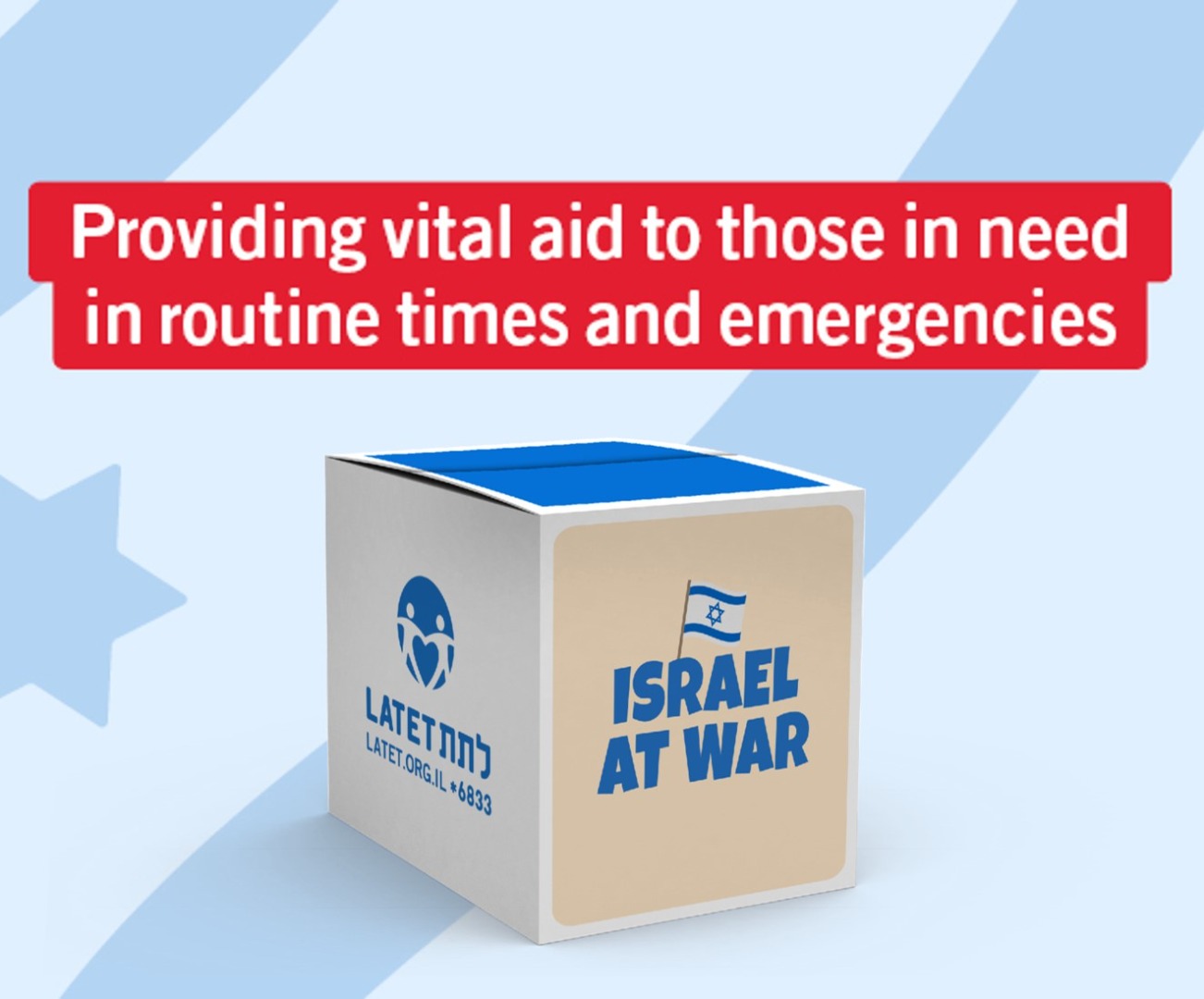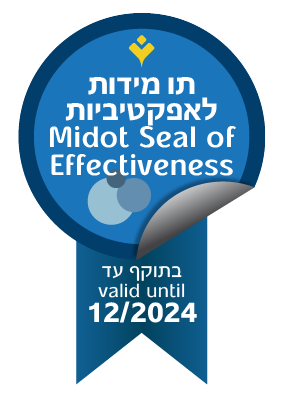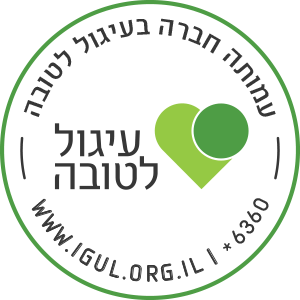We are proud to present to you our end-of-year report detailing all our efforts during this wartime year.
read moreNutritional Security
The Nutritional Security initiative was developed with the aim to reduce nutritional insecurity among families and individuals living in severe poverty by salvaging, collecting, and distributing food. The Nutritional Security initiative provides a unique solution to the problem of nutritional insecurity in Israel: by acting as an umbrella organization in cooperation with more than 210 aid associations and municipalities, it serves as a support network for families and Holocaust survivors in need, while it works to influence change in government policy.
Latet has developed strategic partnerships with leading grocery retailers, food manufacturers, and food distributors in Israel to create a highly successful infrastructure, capable of salvaging food nationally. Latet's cutting edge logistical center accommodates the food storage, packaging, sorting, and distribution of food to local NGOs, ultimately providing food for tens of thousands of families across Israel. Additionally, Latet diligently works to raise public awareness within Israeli society, and abroad, about the issue of food shortage and poverty in Israel.
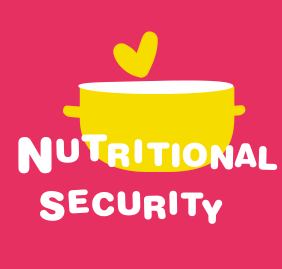
The Program
Need
Uniqueness & Effectiveness
Uniqueness
The Nutritional Security Initative provides a unique solution to the problem of food insecurity in Israel through the concept of operating as an umbrella organization in cooperation with a network of local aid organizations, which provides a support network, and influences change in government policy.
Relative Advantages & Added Value
Scope of Activity
Donations to Populations in Need: Measures of Success
Channels of Influence
The program succeeds in creating change through the following channels of influence:
Measures of Efficiency:
Need
Food insecurity is the most severe feature of poverty, which manifests through lack of regular access to nutritious food and in sufficient quantities that allows for an active and healthy life. The phenomenon affects the daily functioning as well as the normal and healthy development of children, and its family's ability to live a dignified life. The problem is characterized by an accute shortage of food, limited access to nutritious food, hunger and an increase in morbidity as a result of improper nutrition.
The right to minimal food security is a basic human right, but despite the severity and scope of the problem, Israeli governments have over the years chosen to ignore the issue and remove its responsibility to take care of the situation, leaving the third sector to exclusively handle the situation. Donating to populations in need is the most effective tools for citizens to help solve the problem.
Target Population
Families with children, single-parent families, elderly people, Holocaust survivors and individuals in need - living in distress and suffering from long-term food insecurity, from all sectors around the country.
Donations to Populations in Need: Model & Structure
The Nutritional Security Initiative is working in cooperation with about 200 various associations (restaurants, social service branches in local authorities) in all sectors and in 125 communities nationwide. The cooperation with food companies and manufacturers around the countries yeilds a large-scale contribution to populations in need: ongoing and regular assistance to more than 95,000 families.
The food distribution is carried out throughout the country without discrimination, under strict control and supervisional processes in order for the food to reach the aid recipients in proper conidition. The initative has set threshold conditions, clear criteria and continious controlling and supervisional mechanisms for the day-to-day activities
The initative is based on the model of Feeding America, which is the lagerst food aid organization in the world. In accordance with this concept, the initative maintains a logistical infrastructure for transporting food and logistical centers: in the Negev, the center and the Galilee, which serve as regional "food banks". The logistics system includes warehouses, a transportation and distribution system for our partner associations, commercial vehicles, forklifts, refrigerated storage and computer systems.
The right to minimal food security is a basic human right, but despite the severity and scope of the problem, Israeli governments have over the years chosen to ignore the issue and remove its responsibility to take care of the situation, leaving the third sector to exclusively handle the situation. Donating to populations in need is the most effective tools for citizens to help solve the problem.
Target Population
Families with children, single-parent families, elderly people, Holocaust survivors and individuals in need - living in distress and suffering from long-term food insecurity, from all sectors around the country.
Donations to Populations in Need: Model & Structure
The Nutritional Security Initiative is working in cooperation with about 200 various associations (restaurants, social service branches in local authorities) in all sectors and in 125 communities nationwide. The cooperation with food companies and manufacturers around the countries yeilds a large-scale contribution to populations in need: ongoing and regular assistance to more than 95,000 families.
The food distribution is carried out throughout the country without discrimination, under strict control and supervisional processes in order for the food to reach the aid recipients in proper conidition. The initative has set threshold conditions, clear criteria and continious controlling and supervisional mechanisms for the day-to-day activities
The initative is based on the model of Feeding America, which is the lagerst food aid organization in the world. In accordance with this concept, the initative maintains a logistical infrastructure for transporting food and logistical centers: in the Negev, the center and the Galilee, which serve as regional "food banks". The logistics system includes warehouses, a transportation and distribution system for our partner associations, commercial vehicles, forklifts, refrigerated storage and computer systems.
Uniqueness & Effectiveness
Uniqueness
The Nutritional Security Initative provides a unique solution to the problem of food insecurity in Israel through the concept of operating as an umbrella organization in cooperation with a network of local aid organizations, which provides a support network, and influences change in government policy.
Relative Advantages & Added Value
- National and egalitarian umbrella organization - development of the umbrella organization for local food associations in Israel.
- Professionalism and experience - over 20 years of experience, knowledge and deep understanding of the field.
- Strategic collaborations with the food industry - exclusive agreements with major food manufacturers and dozens of food companies.
- Food rescue - rescue of surplus edible food and short-lived goods as the central channel to handle the food insecurity issue.
- Sustainability - an effective solution based on existing resources, prevention of food waste and destruction.
- Ongoing and regular assistance - based on regular acquisition of food products and industrial food rescue.
- Food drive campaigns with the general public - encouraging action, raising awareness, and instilling values of mutual responsibility.
- Control and supervision - ongoing control of the partnering organizations, and strict inspection of the supply chain.
- Support and assistance - support, assistance and enabling of the partner associations.
- Logistics infrastructure - 3 logistics centers; ERP system for inventory management, fleet of trucks and distribution vehicles.
- Code of Ethics - formulation and implementation of common and uniform standards to provide aid and preserve the dignity of the recipients.
- Volunteers - Recruitment, training and overseeing thousands of regular volunteers all year round.
Scope of Activity
- Annual budget: $38,026,000 (money - $12,833,000; in-kind - $25,192,000)
- Around $45 million dollars worth of food is rescued and distributed to families in need each year
- Ongoing and regular aid delivered to 95,000 families in need
- Umbrella organization for 210 non-profits in 125 locations
- Three logistics centers are located in the central region, in the Negev and in the Galilee
- Food Drive Campaign: Throughout the years, there have been dozens of national food collection campaigns, with tens of thousands of volunteers involved 383,000 volunteer hours
Donations to Populations in Need: Measures of Success
- Improvement of aid recipients' situation - ongoing and regular assistance and implementation of the mutual responsibiilty value as a social security net stemming from civil society
- Development of a food rescue infrastructure in Israel - an increase in the amount of food recovered annually from the food industry
- Building a coalition of associations - a national social support network with geographic equality
- Pooling resources - coordination, control, inspection and pooling of resources under the security of an umbrella organization
Channels of Influence
The program succeeds in creating change through the following channels of influence:
- Providing assistance for 95,000 families in need - annual food aid worth millions of shekels decreases the nutritional insecurity of thousands of families and frees resources for other essential needs
- National project - encouraging action and strengthening social solidarity through a network of cooperating organizations including thousands of volunteers, hundreds of companies and thousands of donors and investors
- Advocacy - Latet leads continuous public campaigns in order to influence change in governmental policy on the issue of nutritional security. The campaigns include petitions to the Supreme Court, lobbying the Ministry of Welfare, social exhibitions, and publication of an alternative report on poverty.
Measures of Efficiency:
- SROI: Maximum leverage of funds invested in activities: ratio of 1:9.5 – for every shekel invested in logistics and operations, 9.5 shekels worth of food is collected and distributed.
- Volunteer hours: providing 220,000 volunteer hours in aid to families suffering from nutritional insecurity
- Sustainability: prevention of destruction of edible food worth $30,000,000 annually
קוד אתי
Need
Uniqueness & Effectiveness
Uniqueness
The Nutritional Security Initative provides a unique solution to the problem of food insecurity in Israel through the concept of operating as an umbrella organization in cooperation with a network of local aid organizations, which provides a support network, and influences change in government policy.
Relative Advantages & Added Value
Scope of Activity
Donations to Populations in Need: Measures of Success
Channels of Influence
The program succeeds in creating change through the following channels of influence:
Measures of Efficiency:
Need
Food insecurity is the most severe feature of poverty, which manifests through lack of regular access to nutritious food and in sufficient quantities that allows for an active and healthy life. The phenomenon affects the daily functioning as well as the normal and healthy development of children, and its family's ability to live a dignified life. The problem is characterized by an accute shortage of food, limited access to nutritious food, hunger and an increase in morbidity as a result of improper nutrition.
The right to minimal food security is a basic human right, but despite the severity and scope of the problem, Israeli governments have over the years chosen to ignore the issue and remove its responsibility to take care of the situation, leaving the third sector to exclusively handle the situation. Donating to populations in need is the most effective tools for citizens to help solve the problem.
Target Population
Families with children, single-parent families, elderly people, Holocaust survivors and individuals in need - living in distress and suffering from long-term food insecurity, from all sectors around the country.
Donations to Populations in Need: Model & Structure
The Nutritional Security Initiative is working in cooperation with about 200 various associations (restaurants, social service branches in local authorities) in all sectors and in 125 communities nationwide. The cooperation with food companies and manufacturers around the countries yeilds a large-scale contribution to populations in need: ongoing and regular assistance to more than 95,000 families.
The food distribution is carried out throughout the country without discrimination, under strict control and supervisional processes in order for the food to reach the aid recipients in proper conidition. The initative has set threshold conditions, clear criteria and continious controlling and supervisional mechanisms for the day-to-day activities
The initative is based on the model of Feeding America, which is the lagerst food aid organization in the world. In accordance with this concept, the initative maintains a logistical infrastructure for transporting food and logistical centers: in the Negev, the center and the Galilee, which serve as regional "food banks". The logistics system includes warehouses, a transportation and distribution system for our partner associations, commercial vehicles, forklifts, refrigerated storage and computer systems.
The right to minimal food security is a basic human right, but despite the severity and scope of the problem, Israeli governments have over the years chosen to ignore the issue and remove its responsibility to take care of the situation, leaving the third sector to exclusively handle the situation. Donating to populations in need is the most effective tools for citizens to help solve the problem.
Target Population
Families with children, single-parent families, elderly people, Holocaust survivors and individuals in need - living in distress and suffering from long-term food insecurity, from all sectors around the country.
Donations to Populations in Need: Model & Structure
The Nutritional Security Initiative is working in cooperation with about 200 various associations (restaurants, social service branches in local authorities) in all sectors and in 125 communities nationwide. The cooperation with food companies and manufacturers around the countries yeilds a large-scale contribution to populations in need: ongoing and regular assistance to more than 95,000 families.
The food distribution is carried out throughout the country without discrimination, under strict control and supervisional processes in order for the food to reach the aid recipients in proper conidition. The initative has set threshold conditions, clear criteria and continious controlling and supervisional mechanisms for the day-to-day activities
The initative is based on the model of Feeding America, which is the lagerst food aid organization in the world. In accordance with this concept, the initative maintains a logistical infrastructure for transporting food and logistical centers: in the Negev, the center and the Galilee, which serve as regional "food banks". The logistics system includes warehouses, a transportation and distribution system for our partner associations, commercial vehicles, forklifts, refrigerated storage and computer systems.
Uniqueness & Effectiveness
Uniqueness
The Nutritional Security Initative provides a unique solution to the problem of food insecurity in Israel through the concept of operating as an umbrella organization in cooperation with a network of local aid organizations, which provides a support network, and influences change in government policy.
Relative Advantages & Added Value
- National and egalitarian umbrella organization - development of the umbrella organization for local food associations in Israel.
- Professionalism and experience - over 20 years of experience, knowledge and deep understanding of the field.
- Strategic collaborations with the food industry - exclusive agreements with major food manufacturers and dozens of food companies.
- Food rescue - rescue of surplus edible food and short-lived goods as the central channel to handle the food insecurity issue.
- Sustainability - an effective solution based on existing resources, prevention of food waste and destruction.
- Ongoing and regular assistance - based on regular acquisition of food products and industrial food rescue.
- Food drive campaigns with the general public - encouraging action, raising awareness, and instilling values of mutual responsibility.
- Control and supervision - ongoing control of the partnering organizations, and strict inspection of the supply chain.
- Support and assistance - support, assistance and enabling of the partner associations.
- Logistics infrastructure - 3 logistics centers; ERP system for inventory management, fleet of trucks and distribution vehicles.
- Code of Ethics - formulation and implementation of common and uniform standards to provide aid and preserve the dignity of the recipients.
- Volunteers - Recruitment, training and overseeing thousands of regular volunteers all year round.
Scope of Activity
- Annual budget: $38,026,000 (money - $12,833,000; in-kind - $25,192,000)
- Around $45 million dollars worth of food is rescued and distributed to families in need each year
- Ongoing and regular aid delivered to 95,000 families in need
- Umbrella organization for 210 non-profits in 125 locations
- Three logistics centers are located in the central region, in the Negev and in the Galilee
- Food Drive Campaign: Throughout the years, there have been dozens of national food collection campaigns, with tens of thousands of volunteers involved 383,000 volunteer hours
Donations to Populations in Need: Measures of Success
- Improvement of aid recipients' situation - ongoing and regular assistance and implementation of the mutual responsibiilty value as a social security net stemming from civil society
- Development of a food rescue infrastructure in Israel - an increase in the amount of food recovered annually from the food industry
- Building a coalition of associations - a national social support network with geographic equality
- Pooling resources - coordination, control, inspection and pooling of resources under the security of an umbrella organization
Channels of Influence
The program succeeds in creating change through the following channels of influence:
- Providing assistance for 95,000 families in need - annual food aid worth millions of shekels decreases the nutritional insecurity of thousands of families and frees resources for other essential needs
- National project - encouraging action and strengthening social solidarity through a network of cooperating organizations including thousands of volunteers, hundreds of companies and thousands of donors and investors
- Advocacy - Latet leads continuous public campaigns in order to influence change in governmental policy on the issue of nutritional security. The campaigns include petitions to the Supreme Court, lobbying the Ministry of Welfare, social exhibitions, and publication of an alternative report on poverty.
Measures of Efficiency:
- SROI: Maximum leverage of funds invested in activities: ratio of 1:9.5 – for every shekel invested in logistics and operations, 9.5 shekels worth of food is collected and distributed.
- Volunteer hours: providing 220,000 volunteer hours in aid to families suffering from nutritional insecurity
- Sustainability: prevention of destruction of edible food worth $30,000,000 annually
